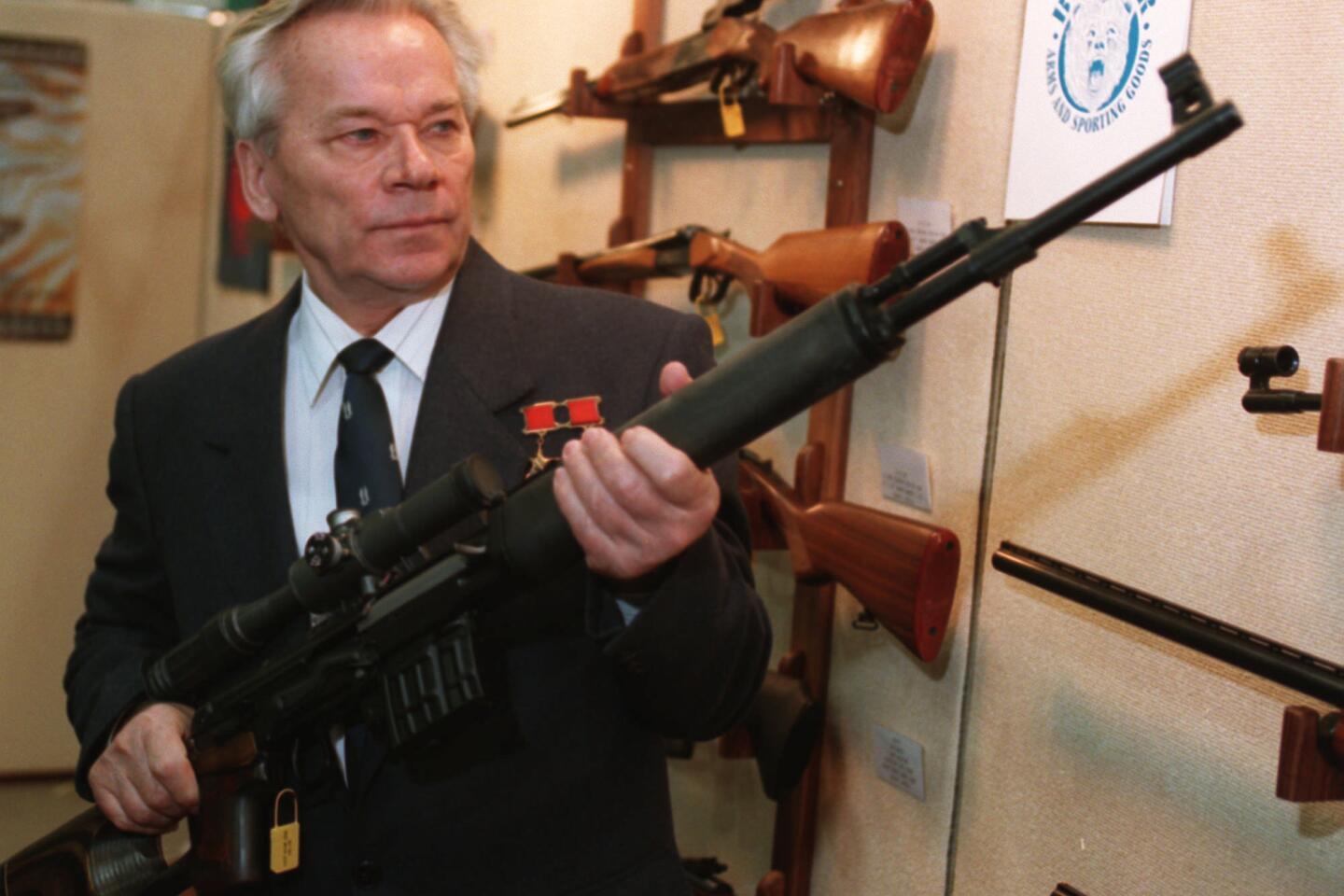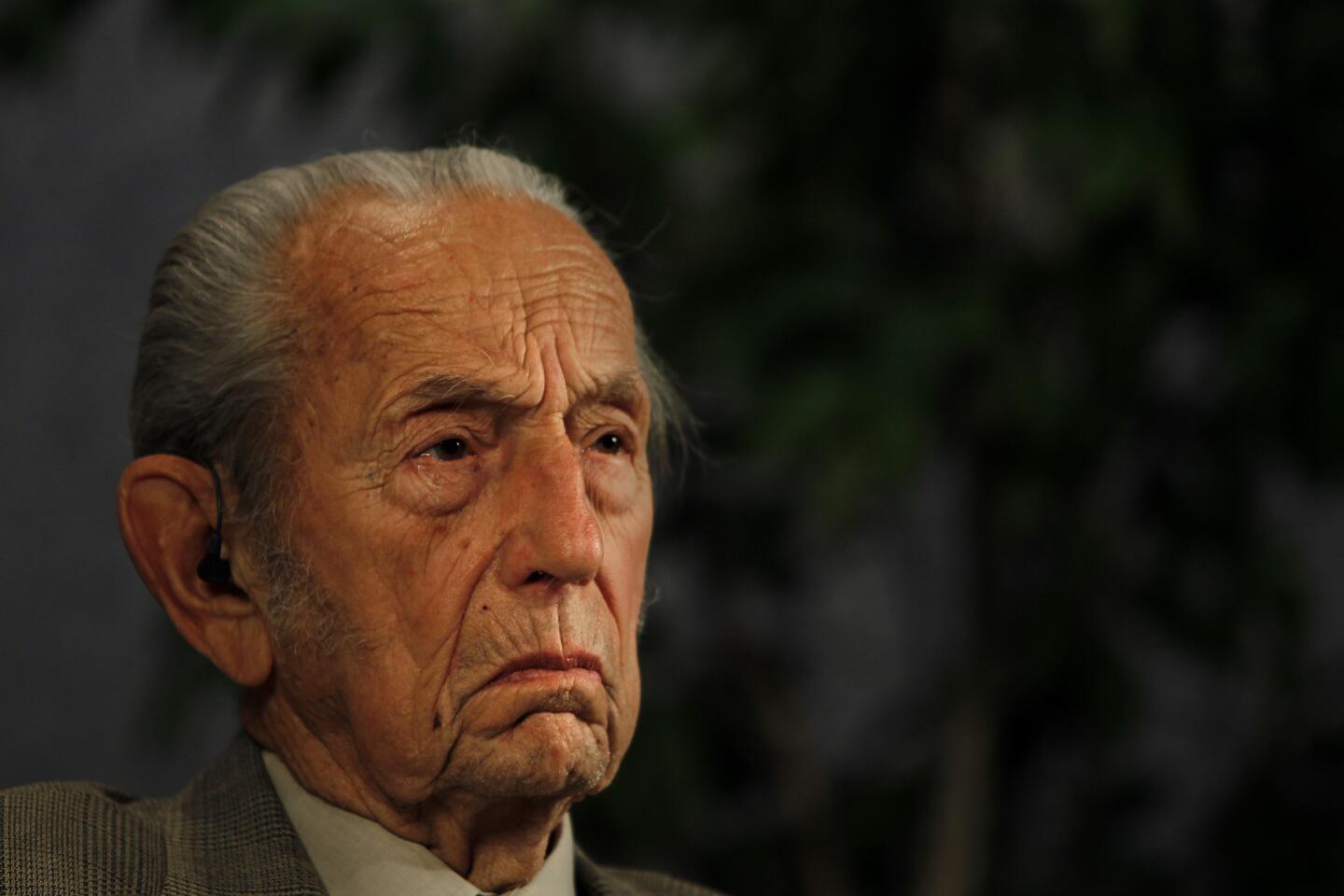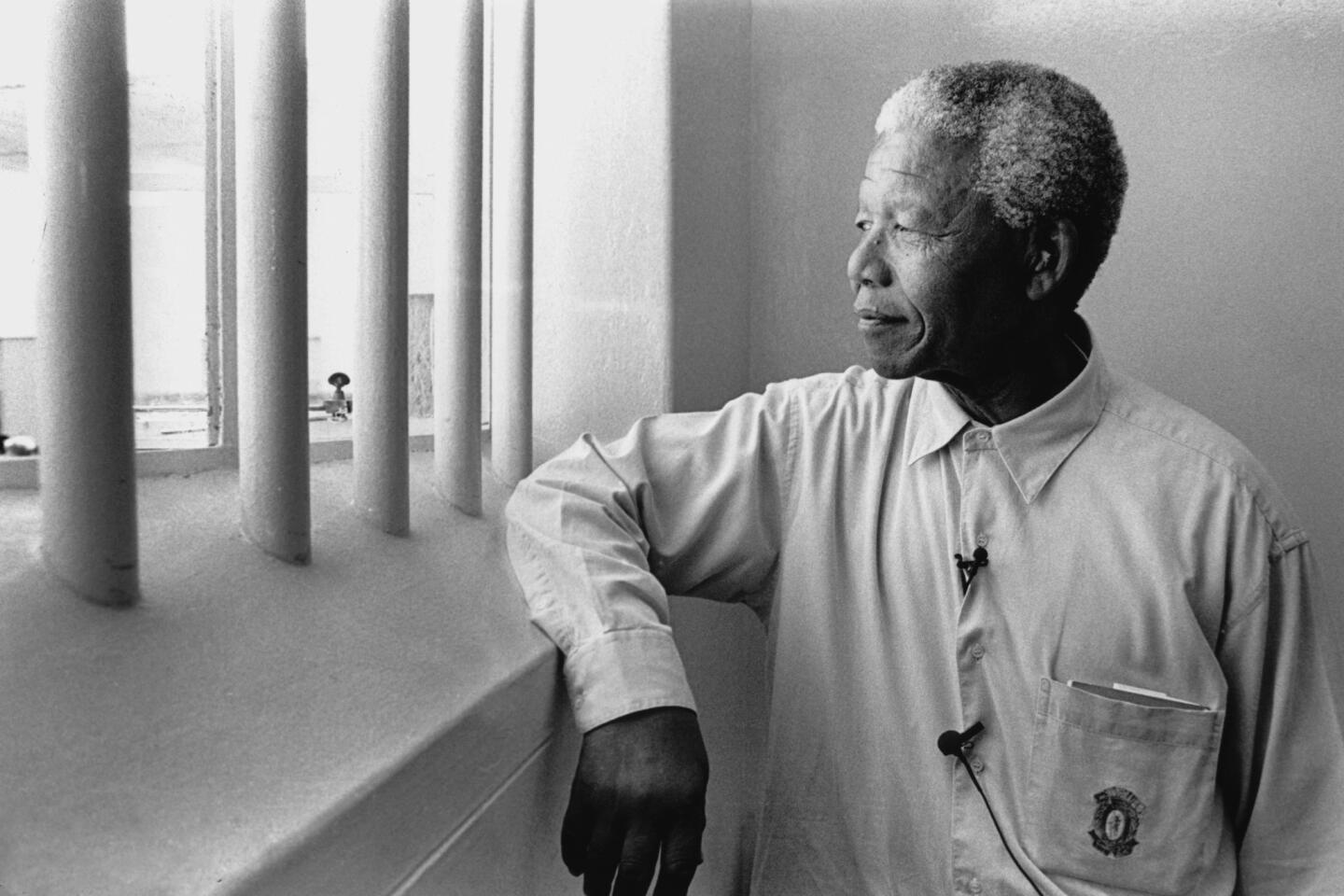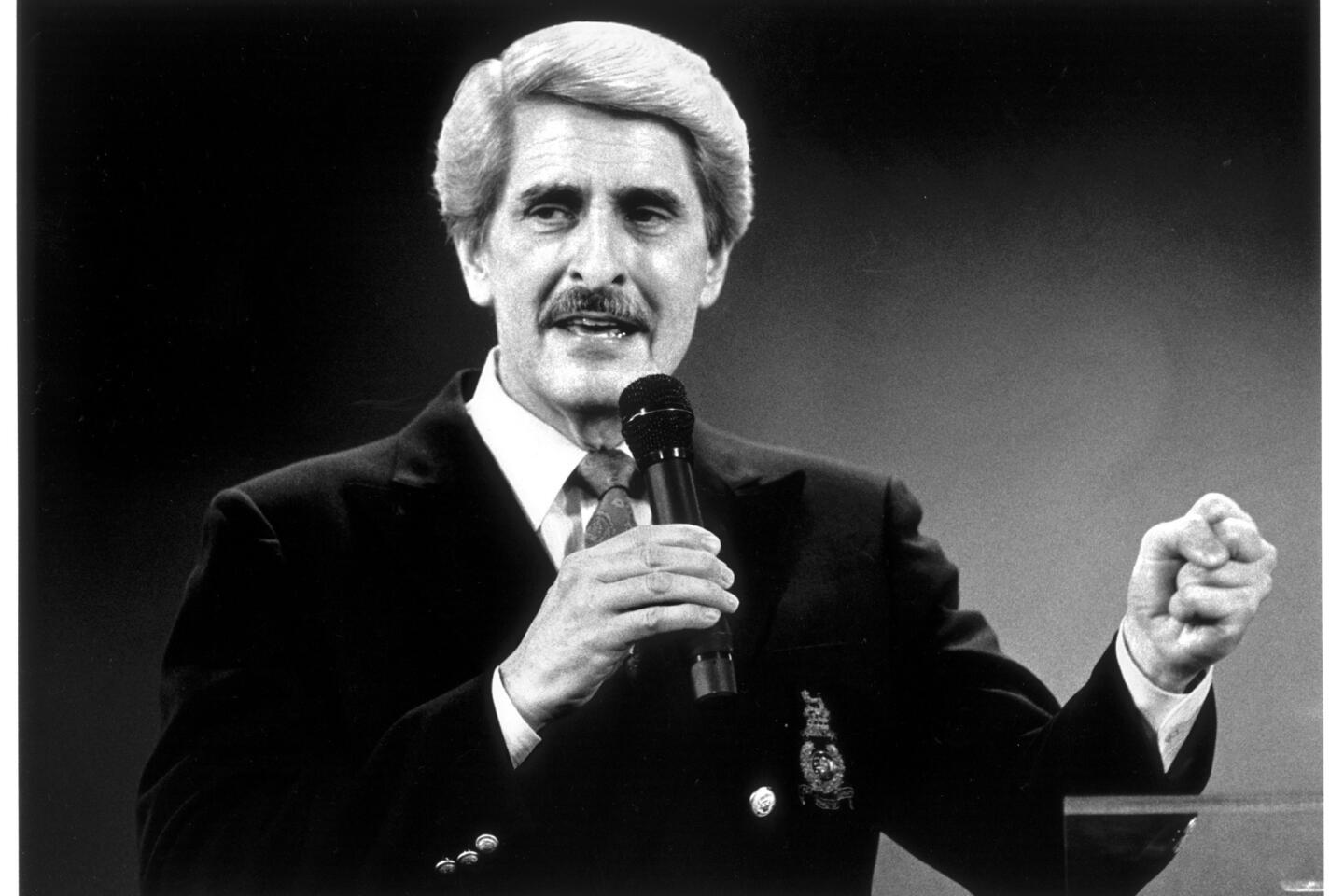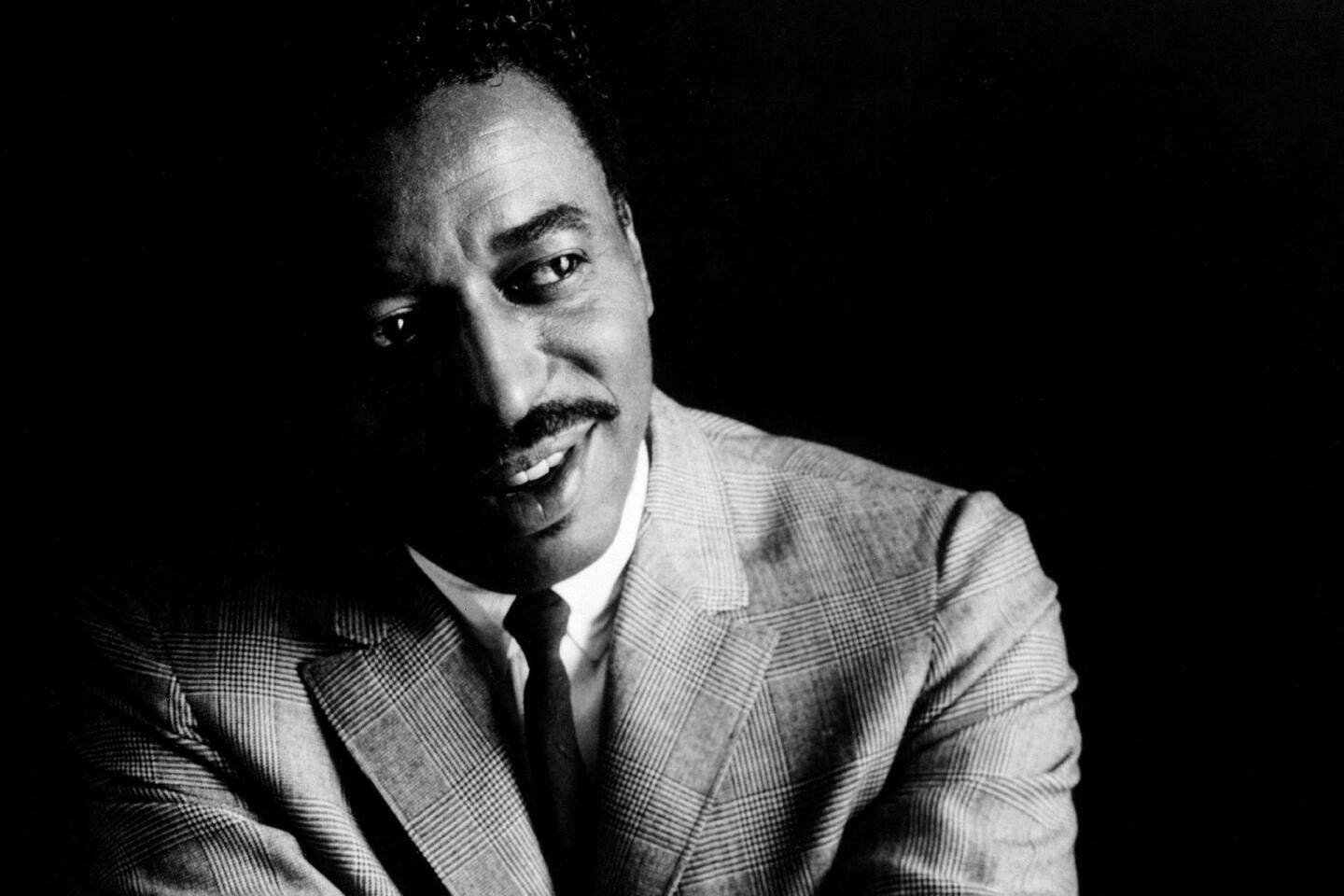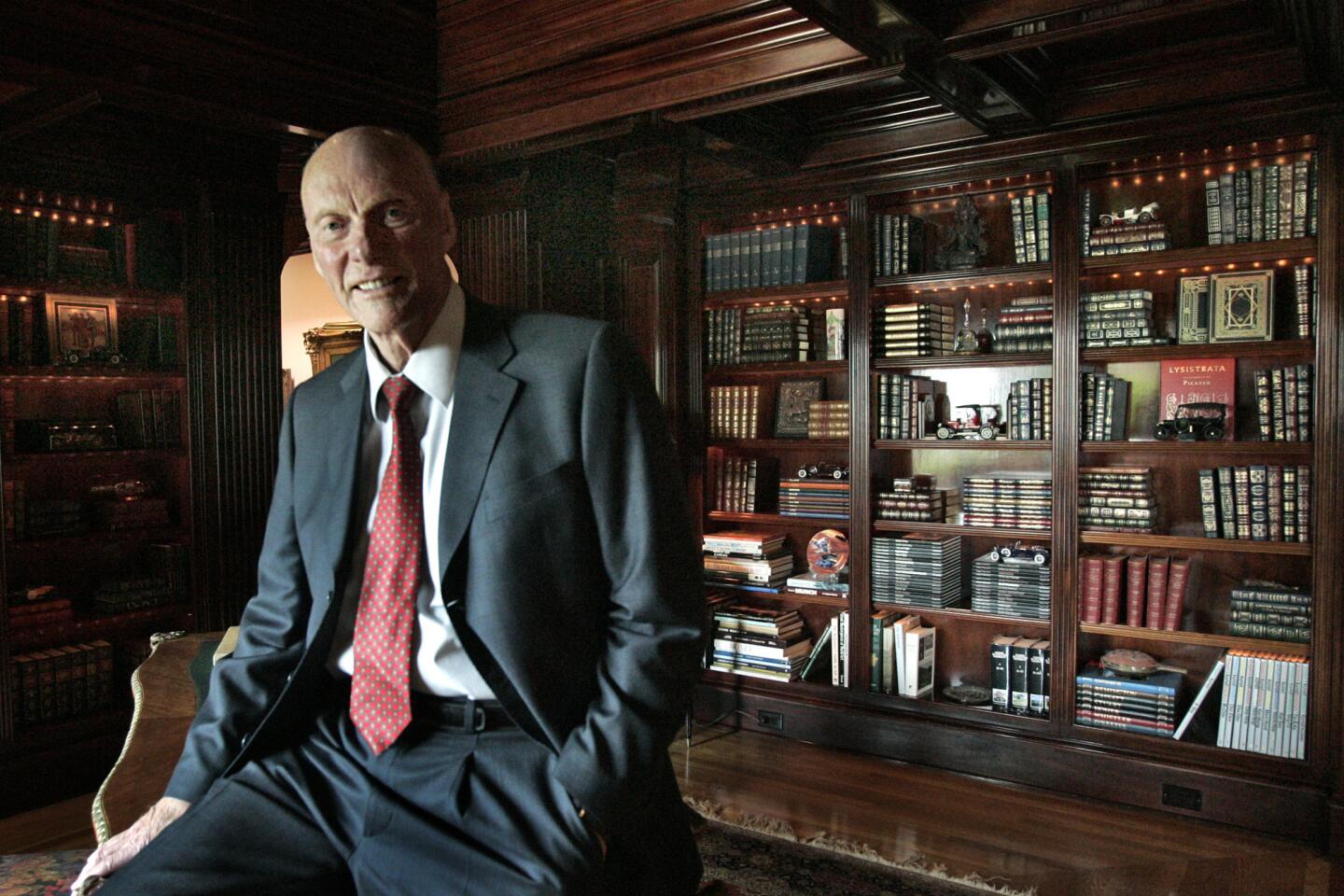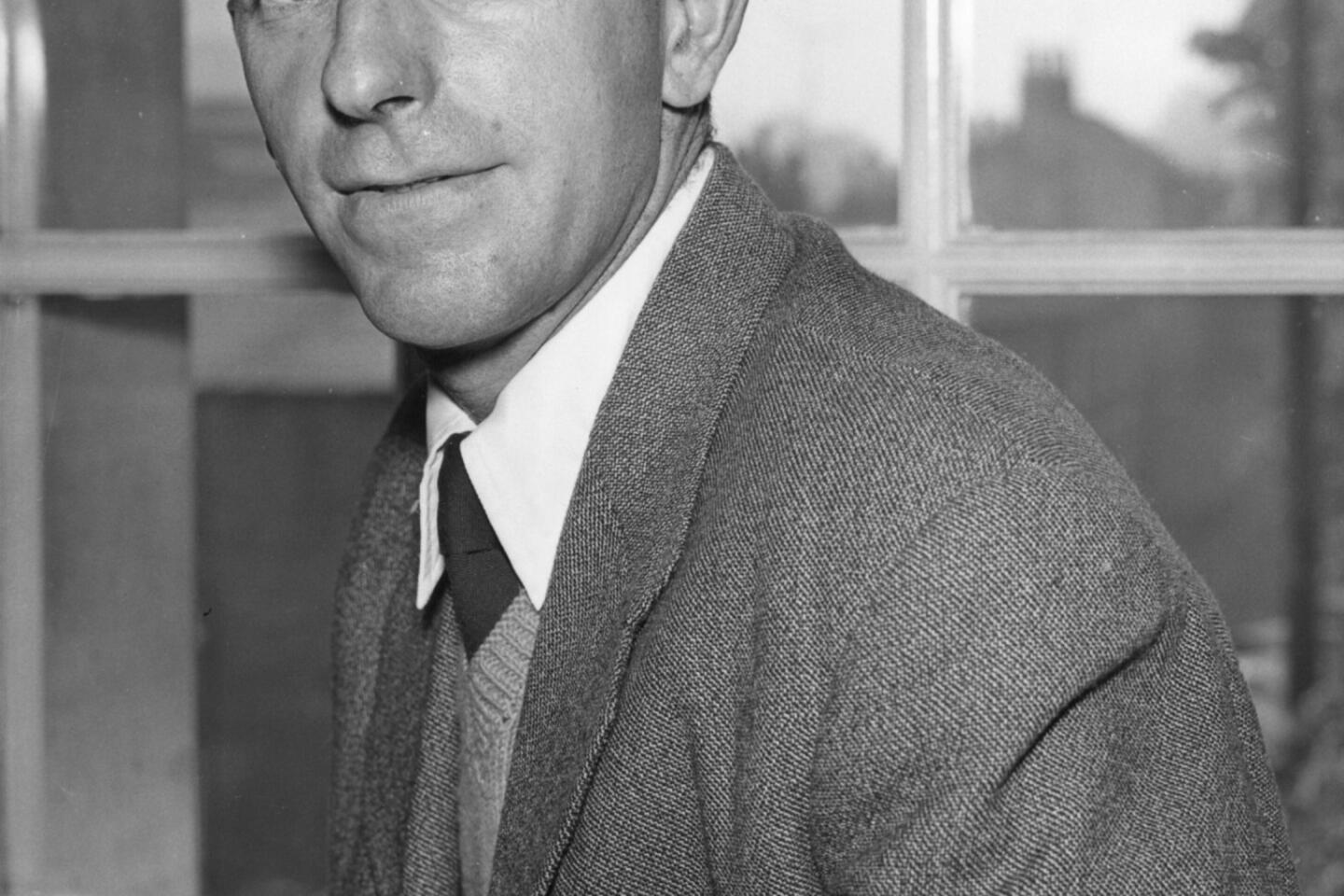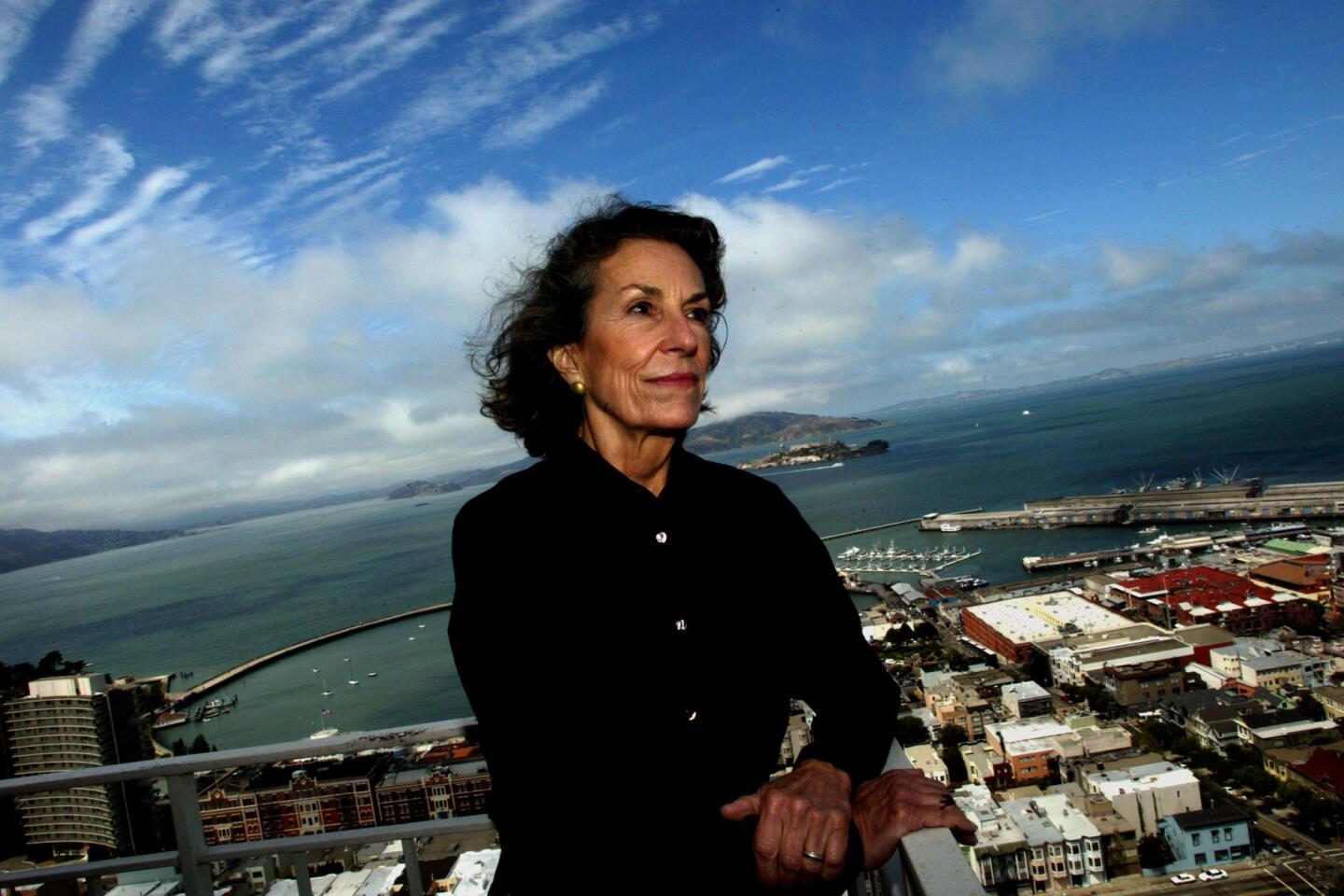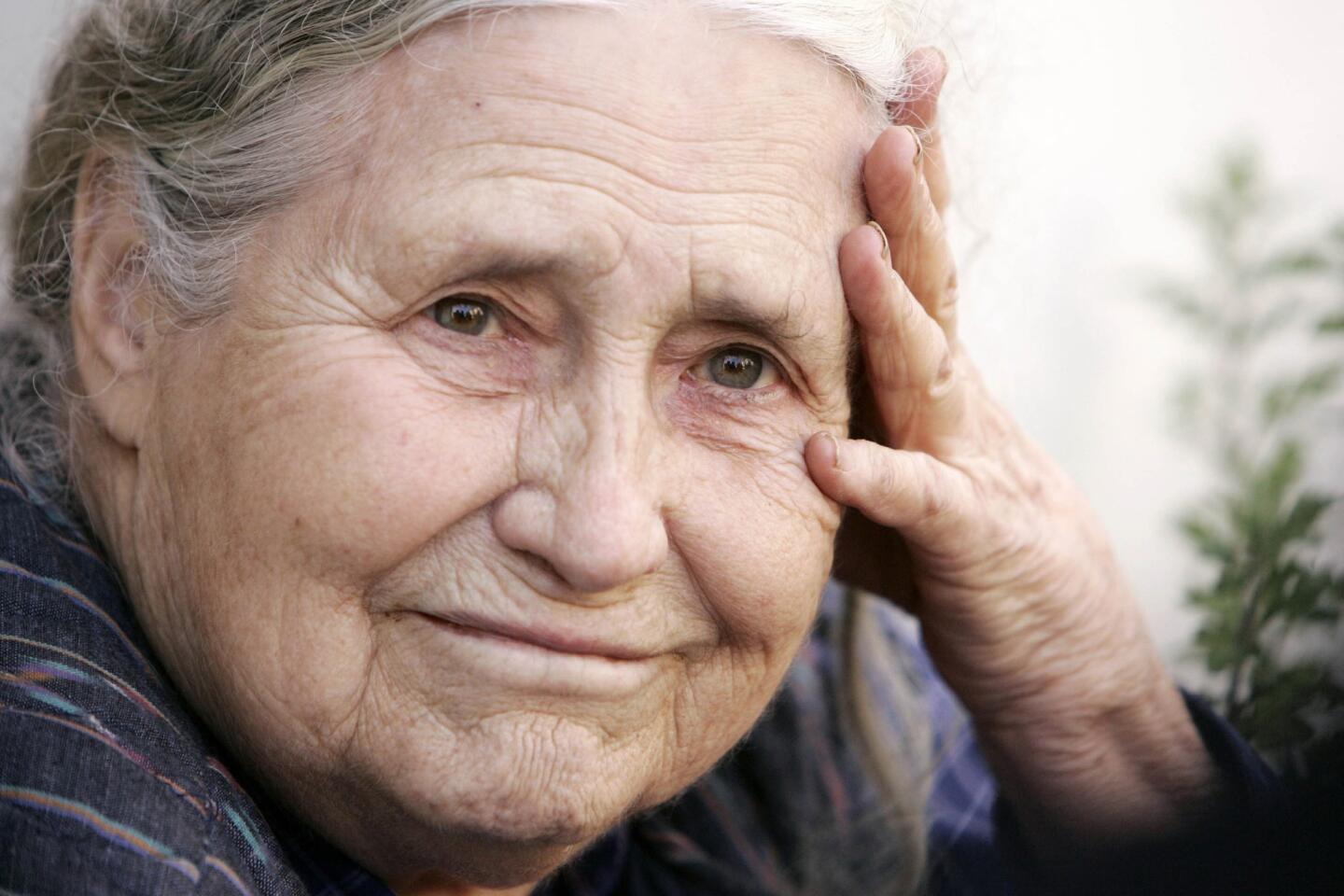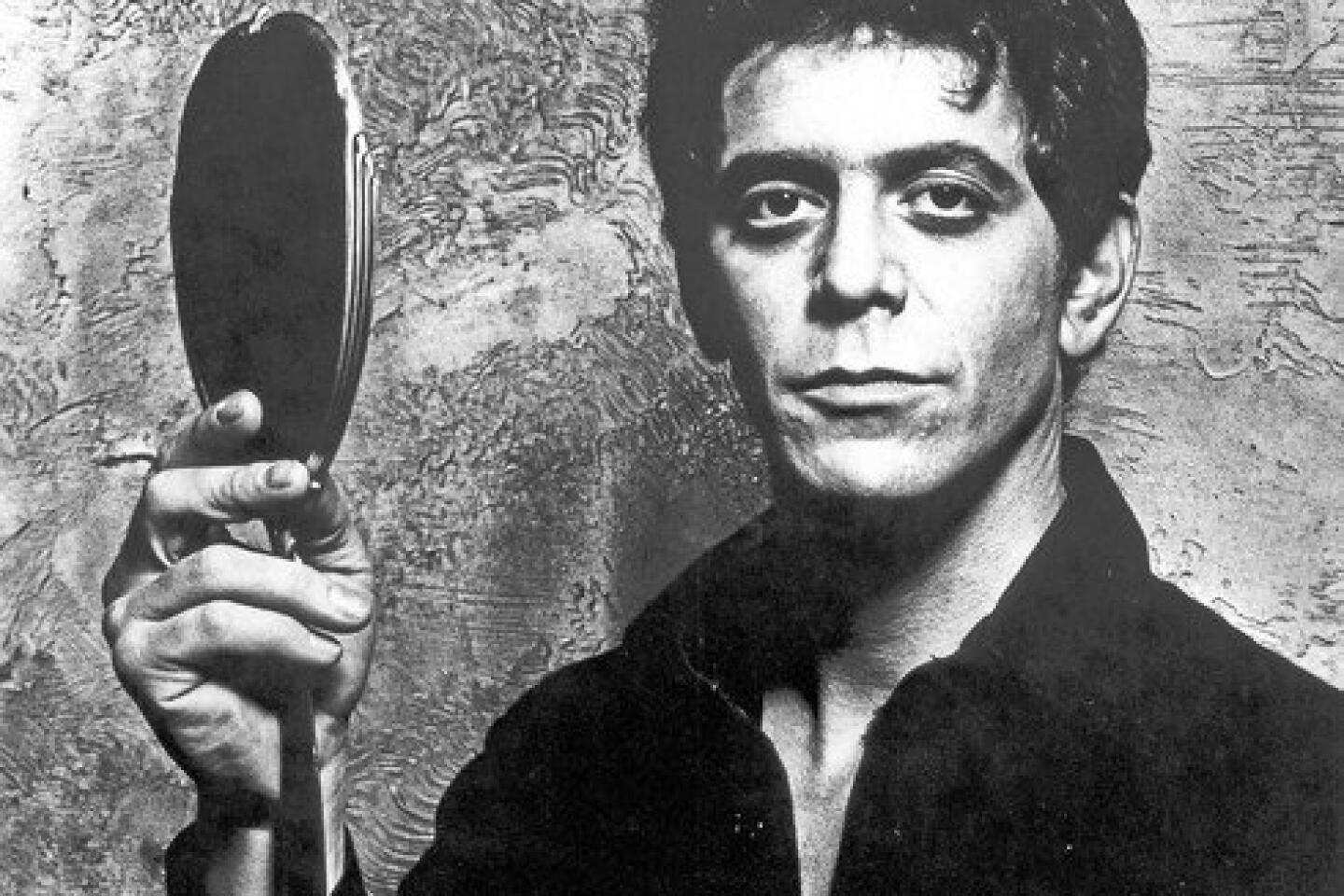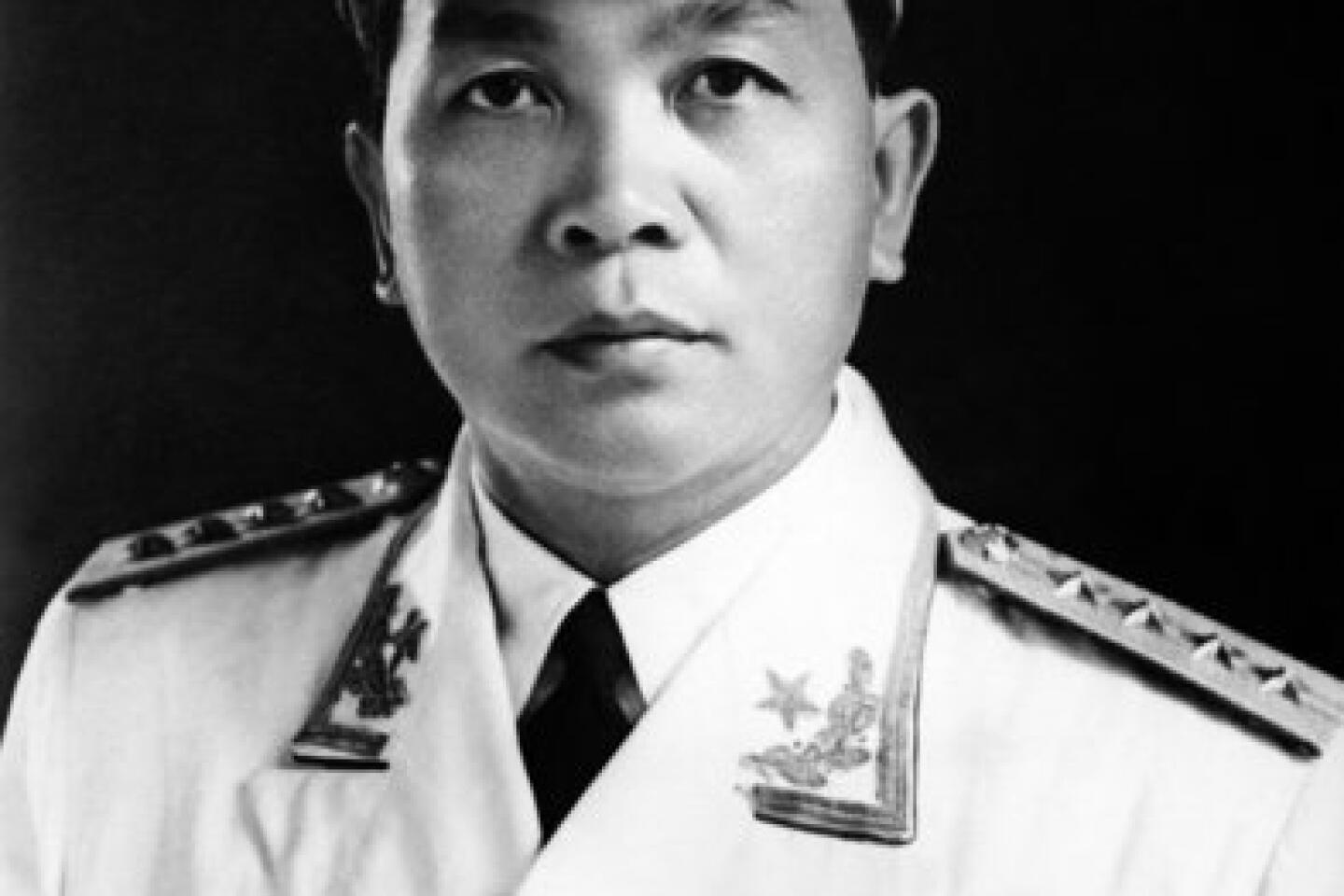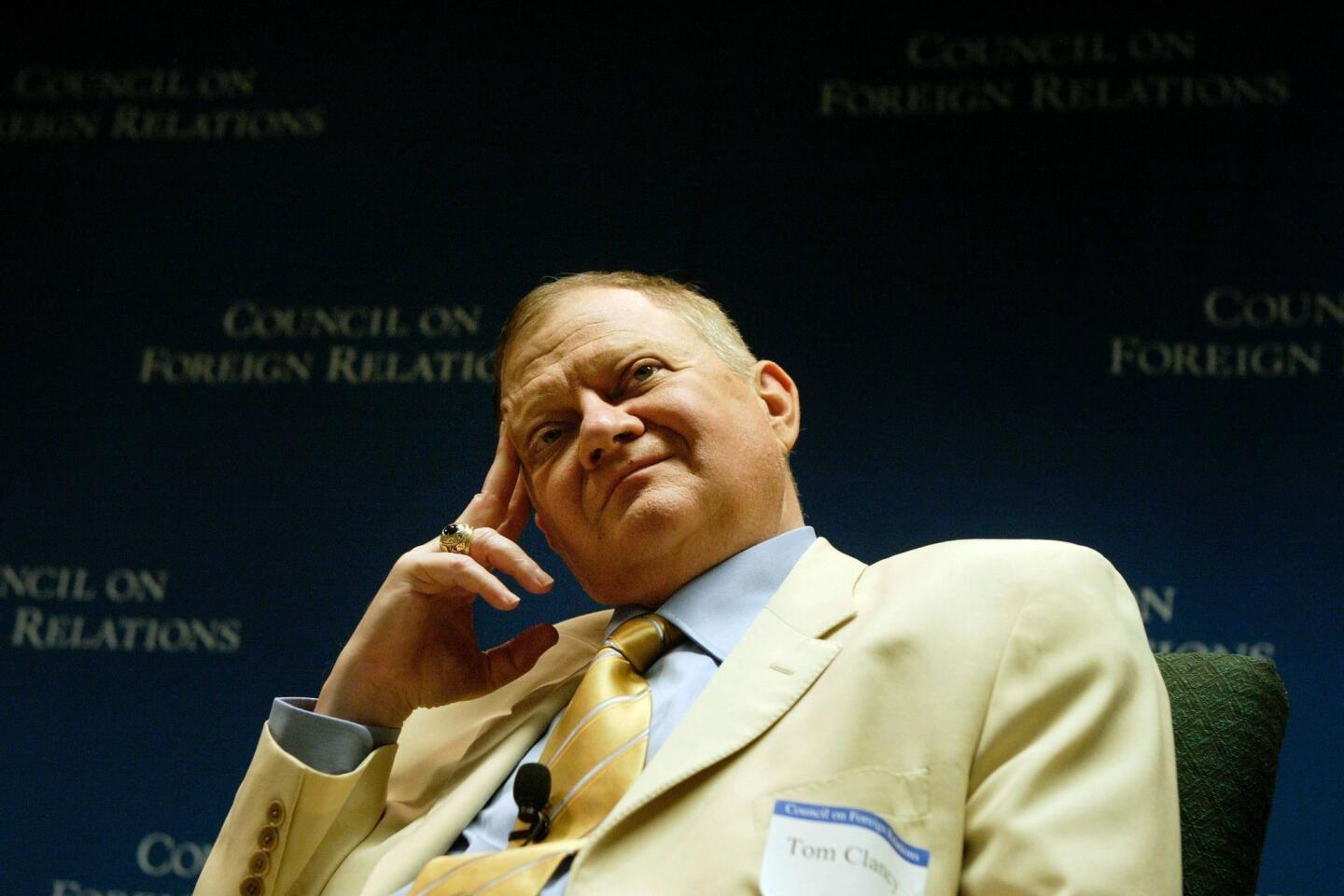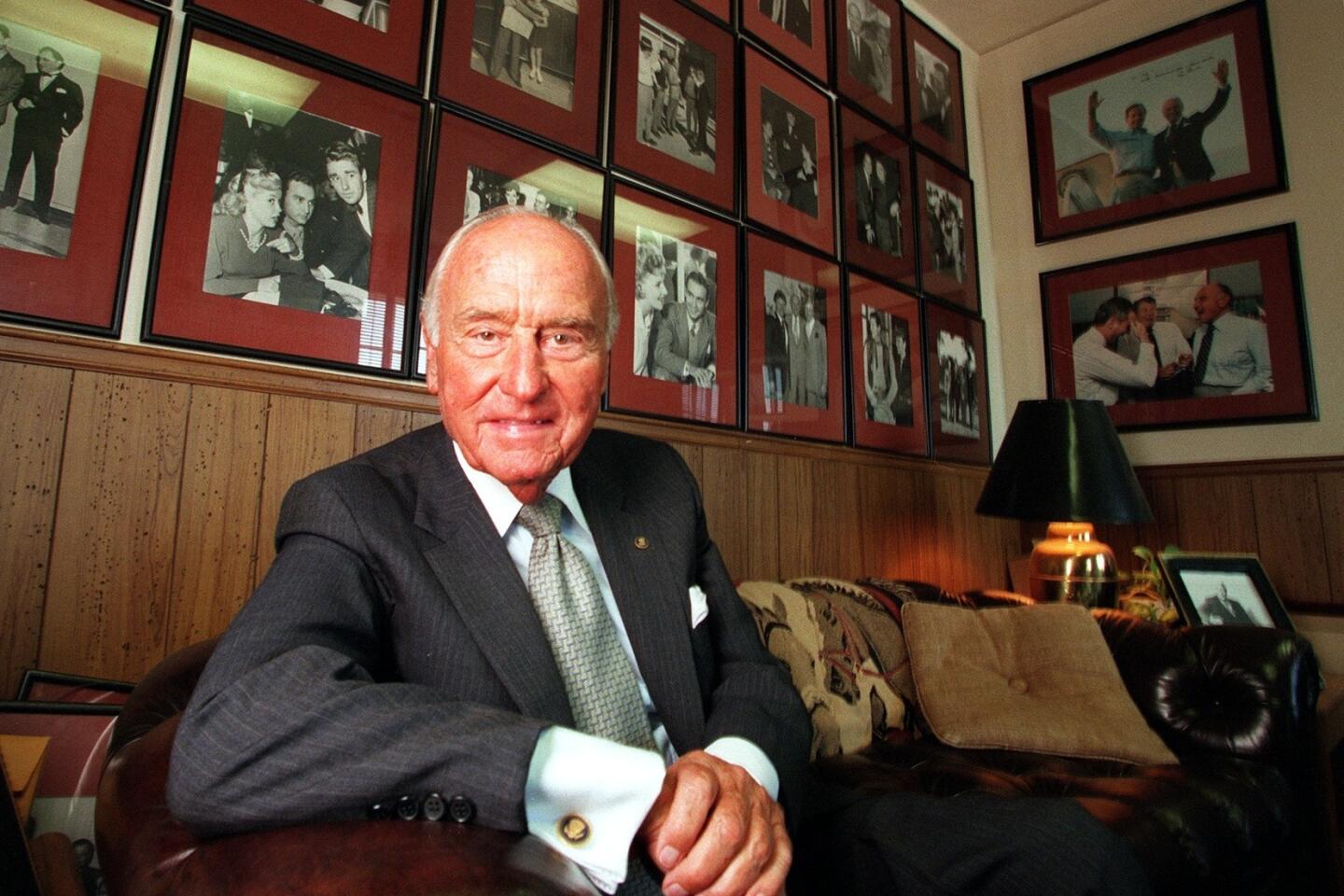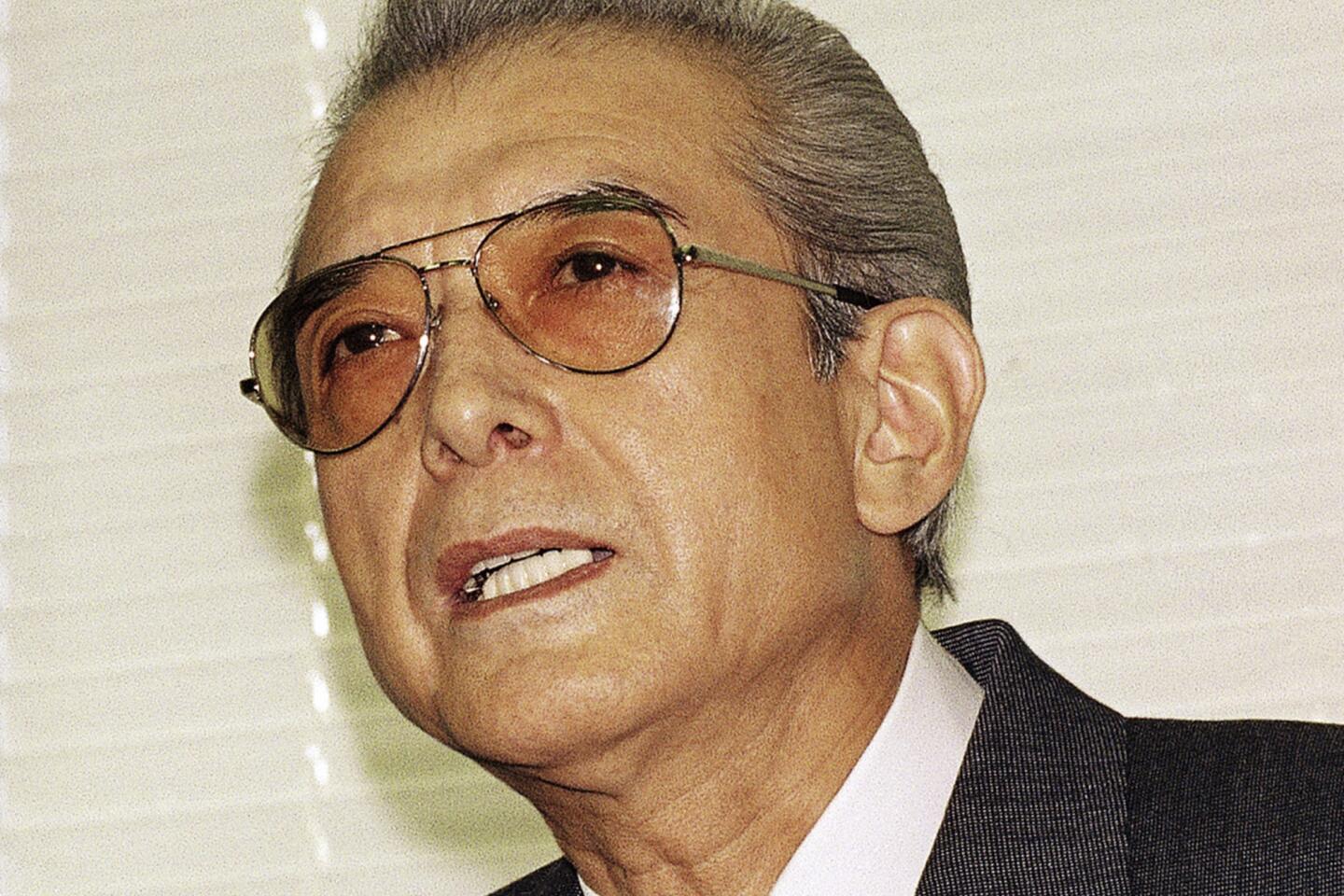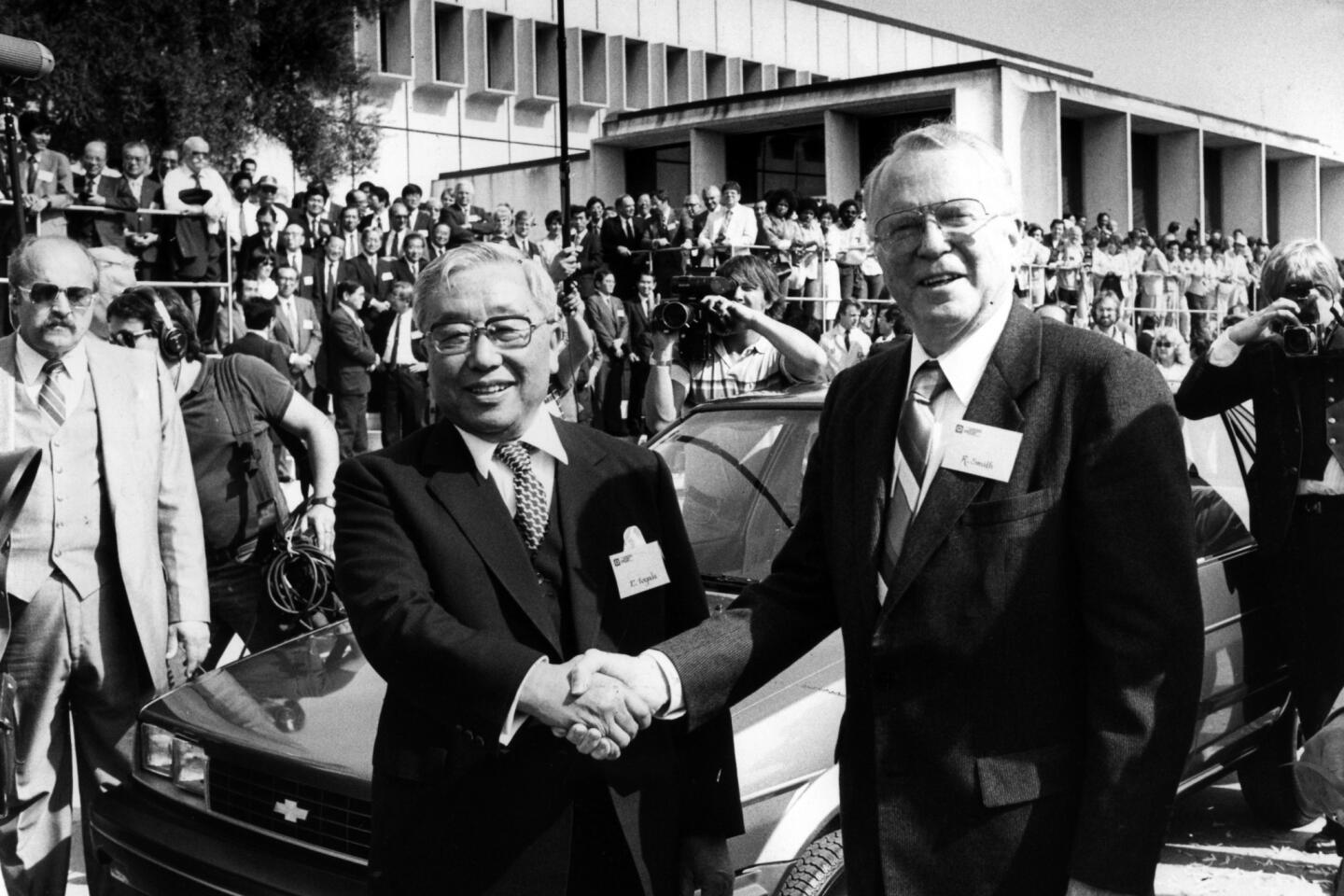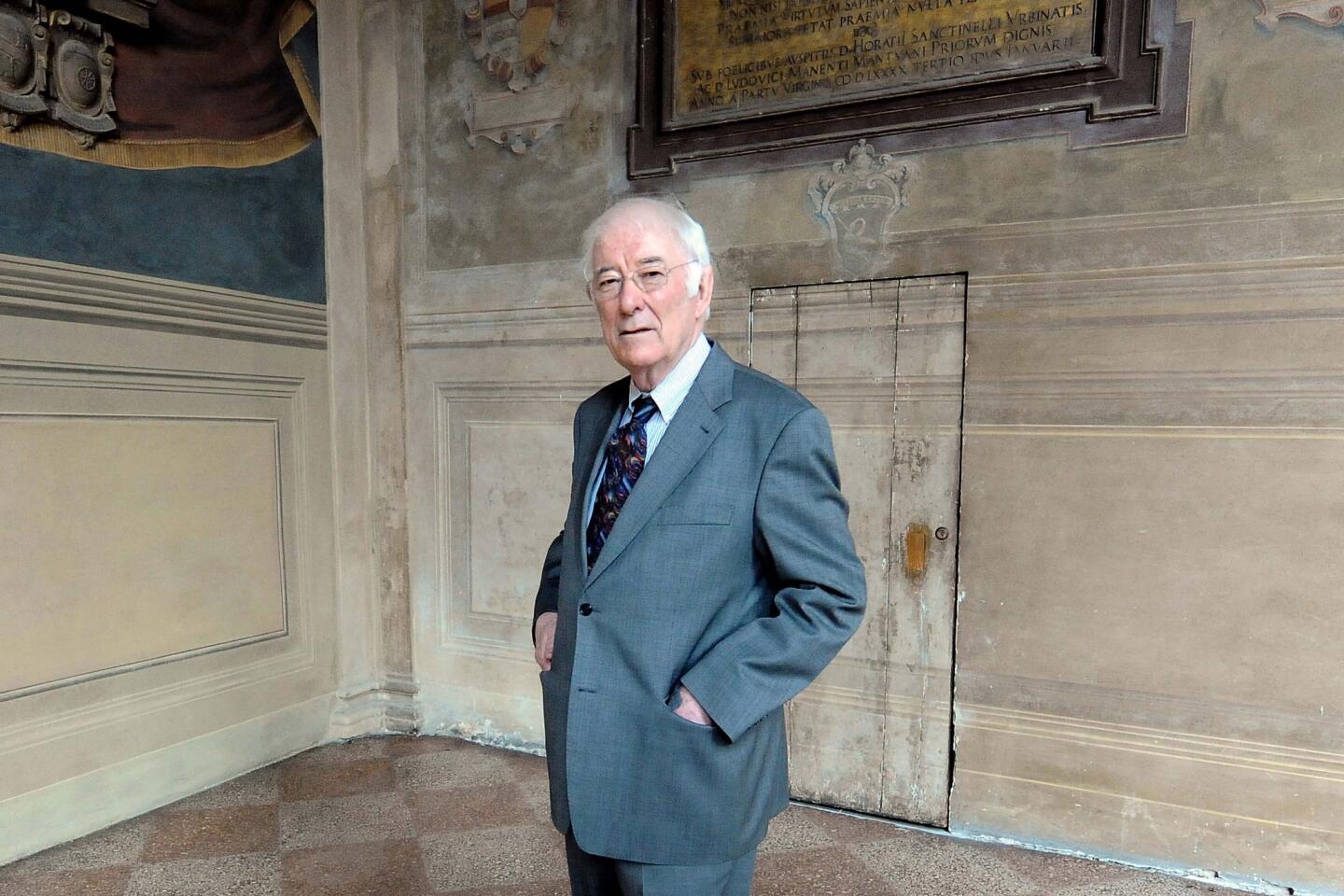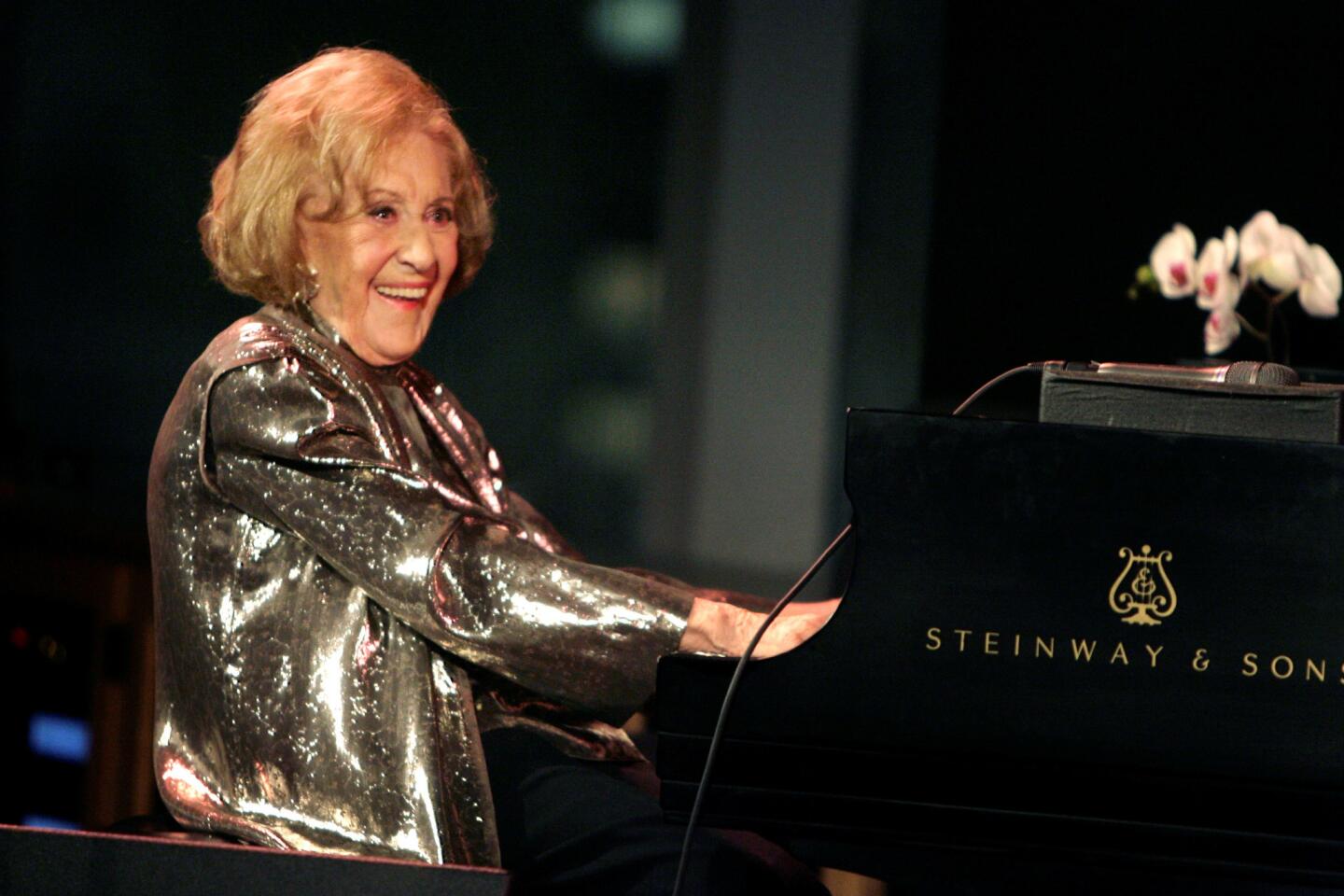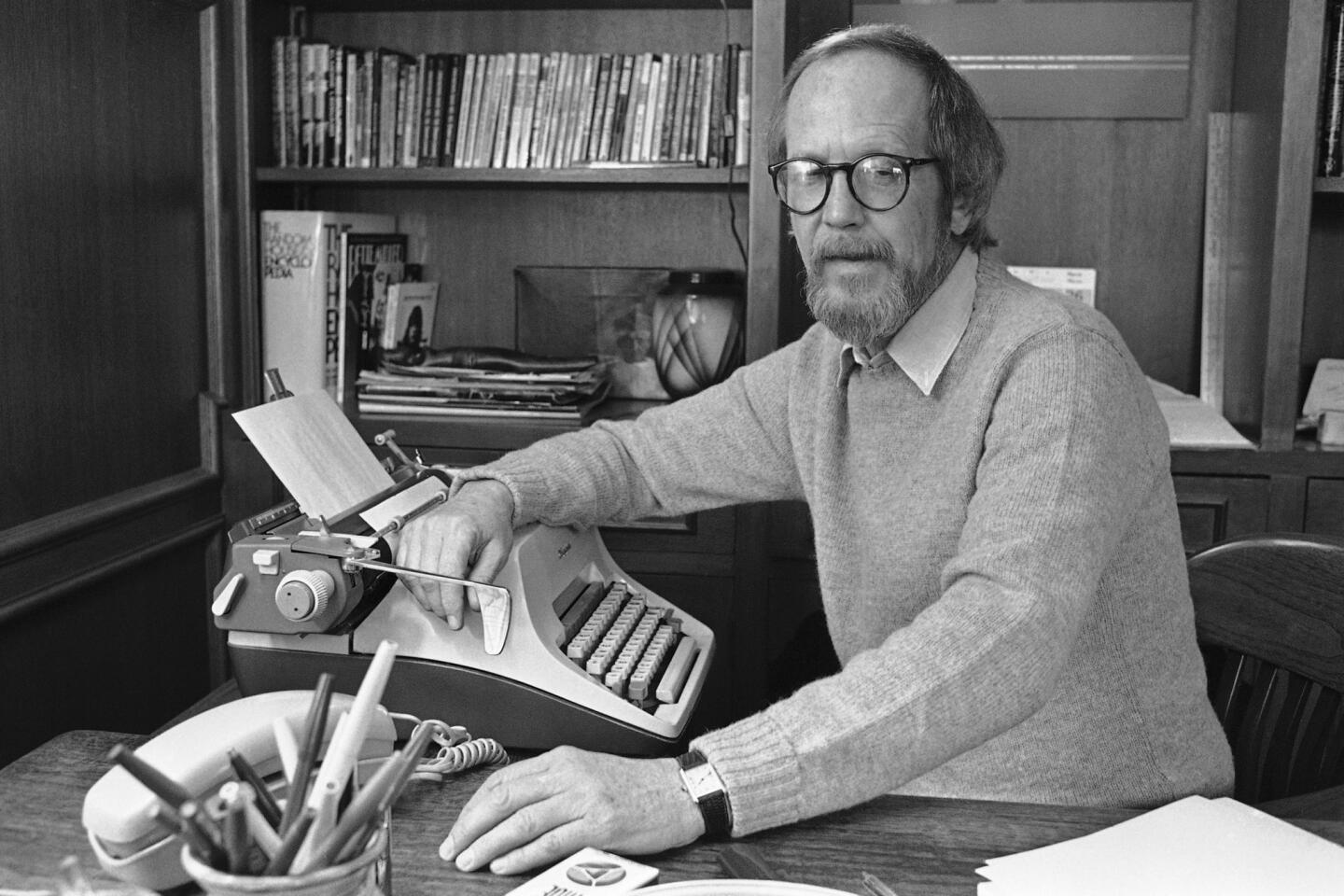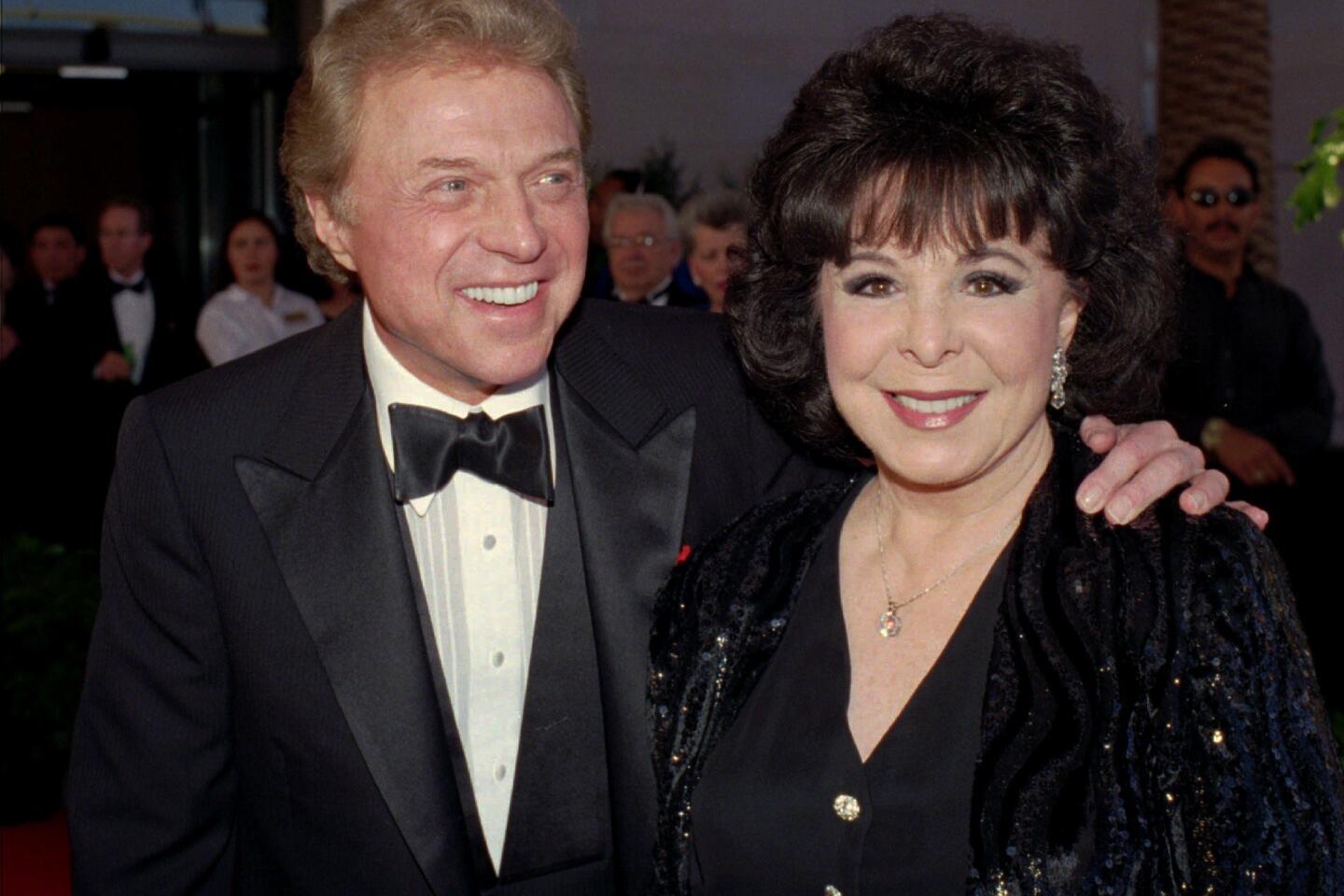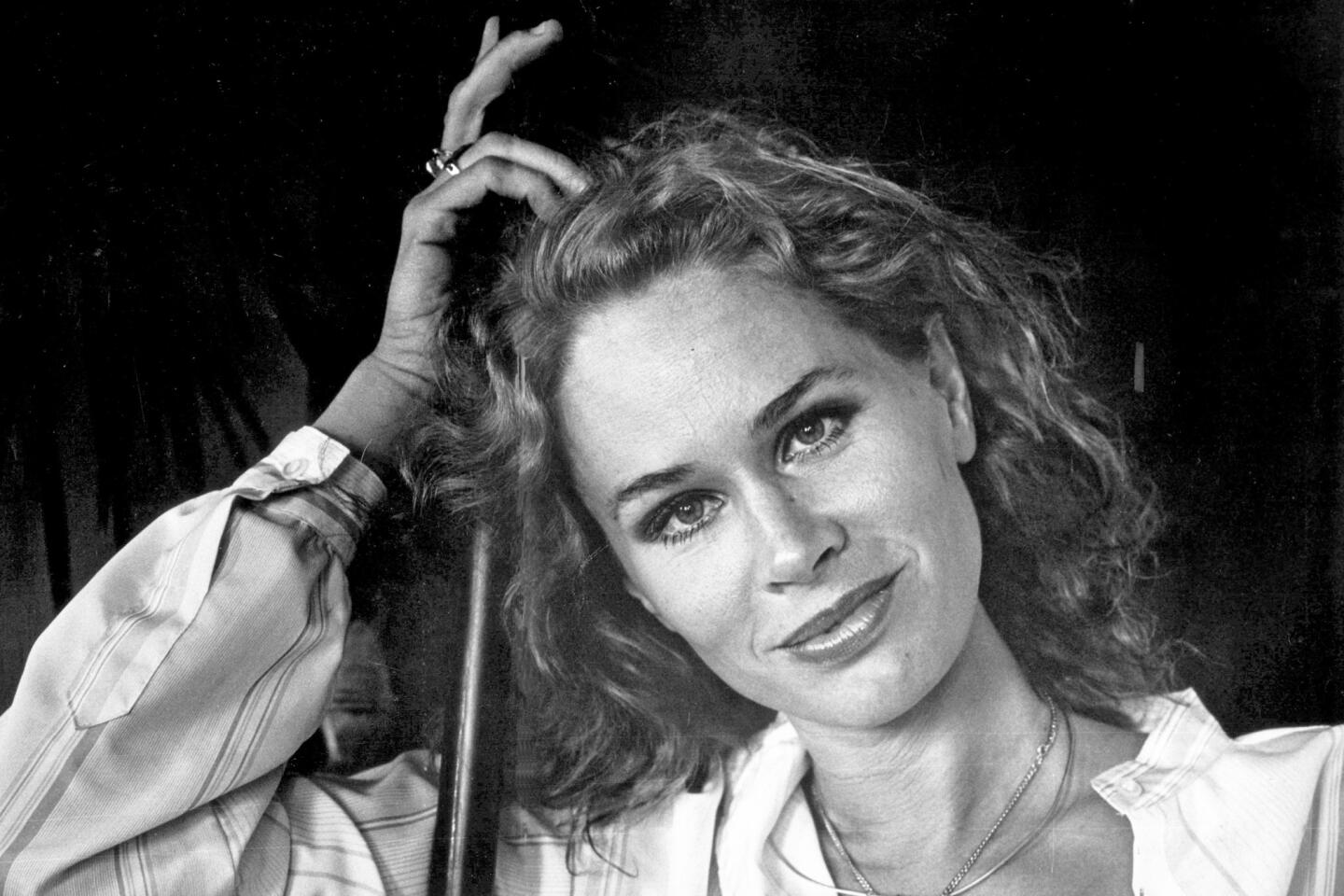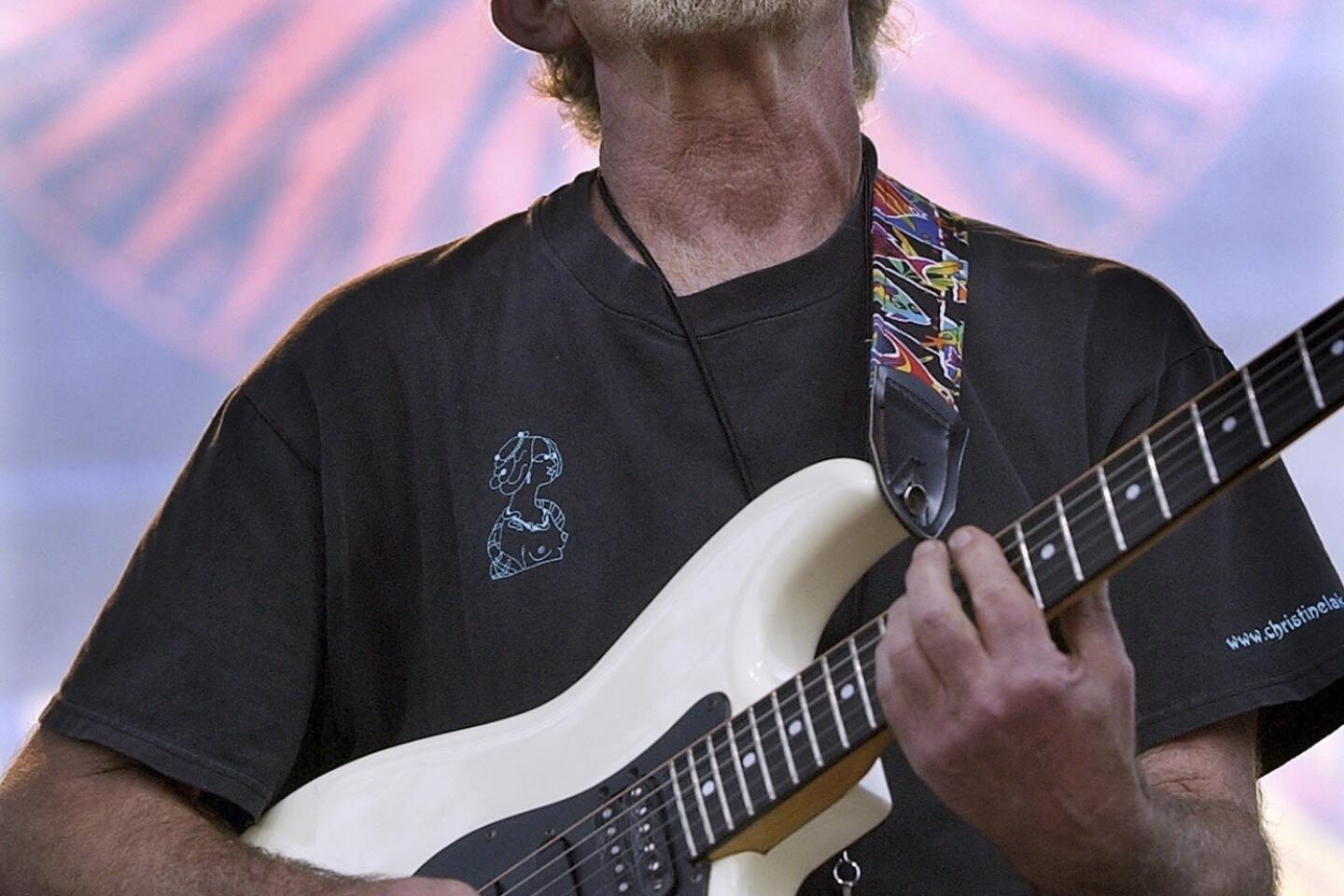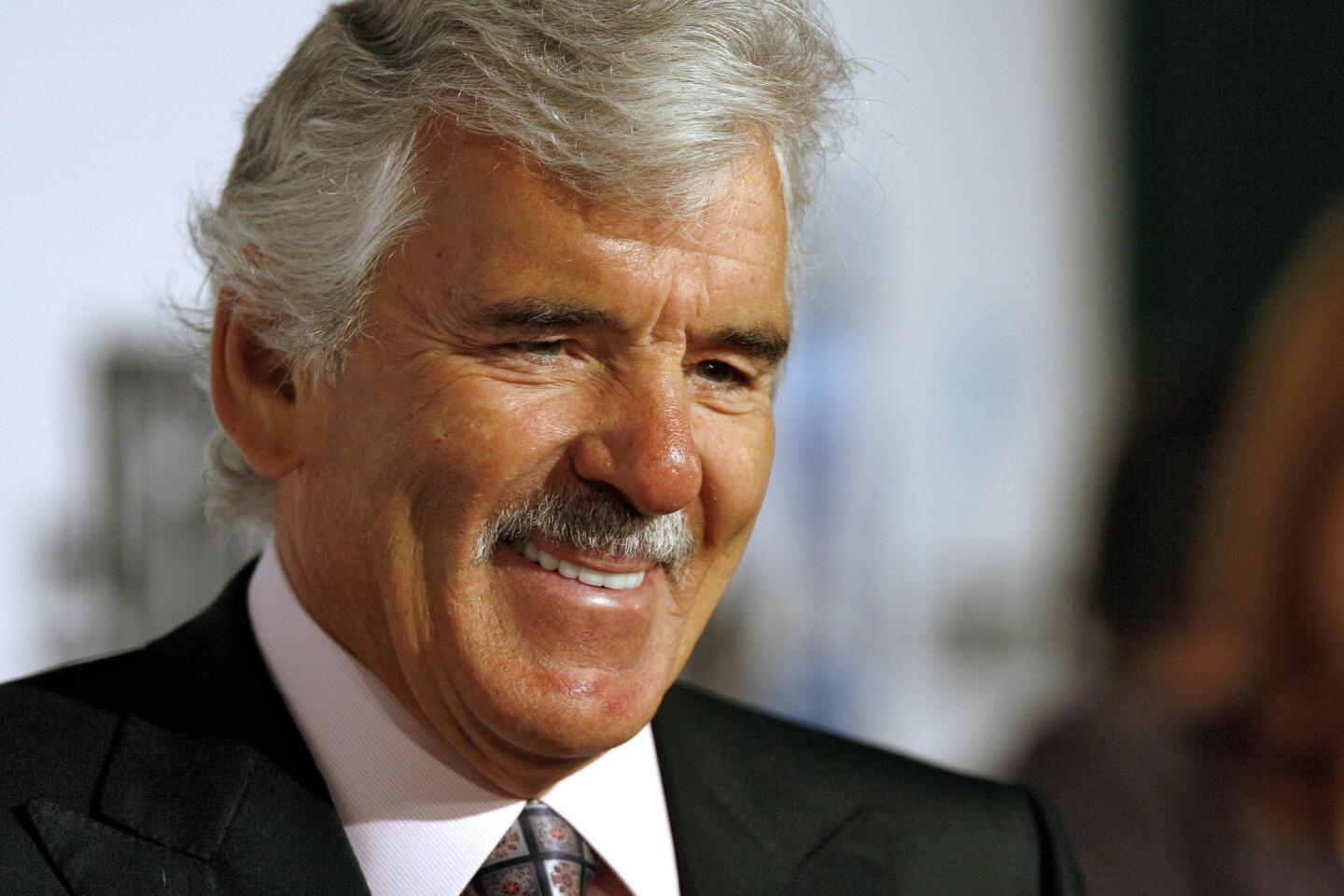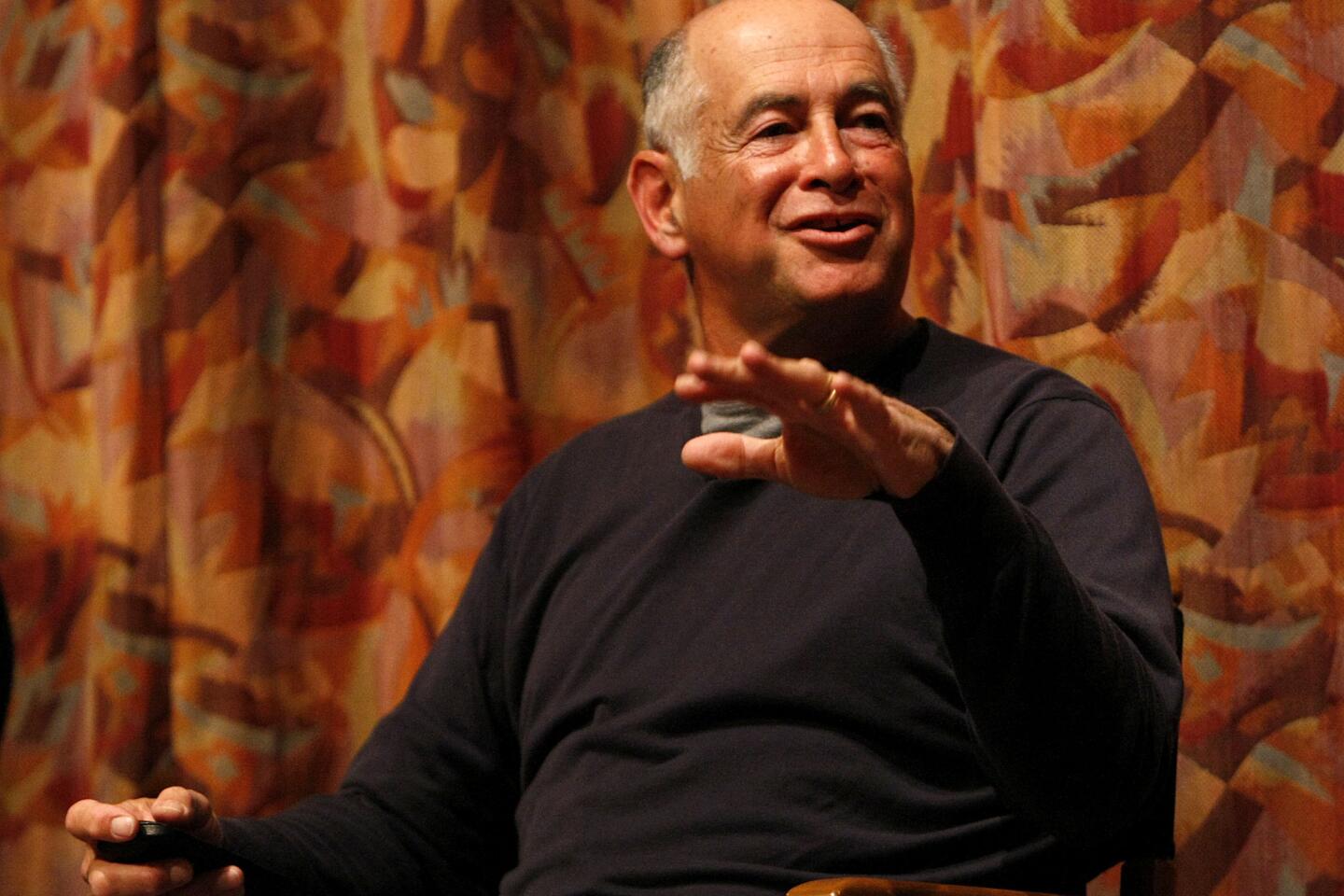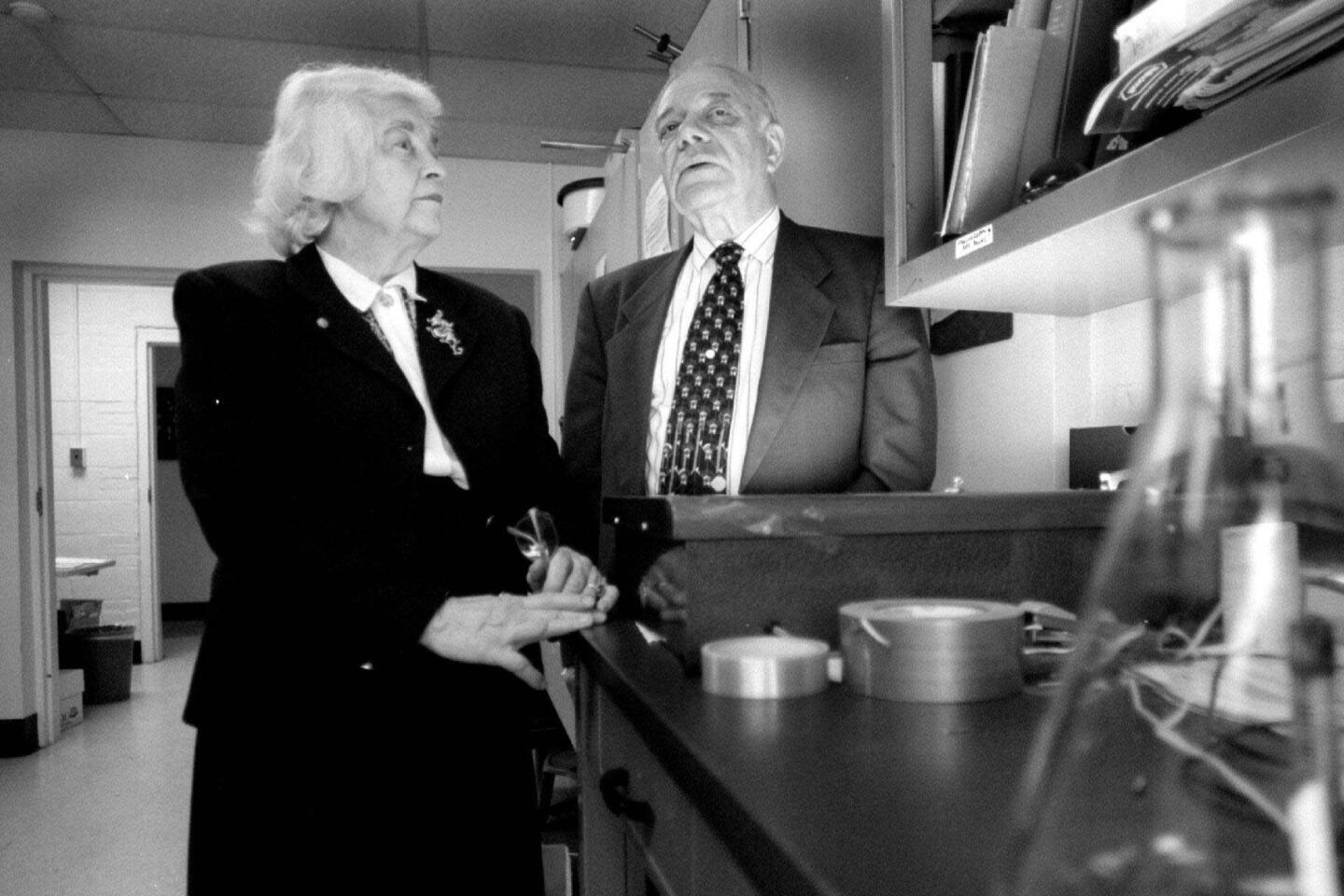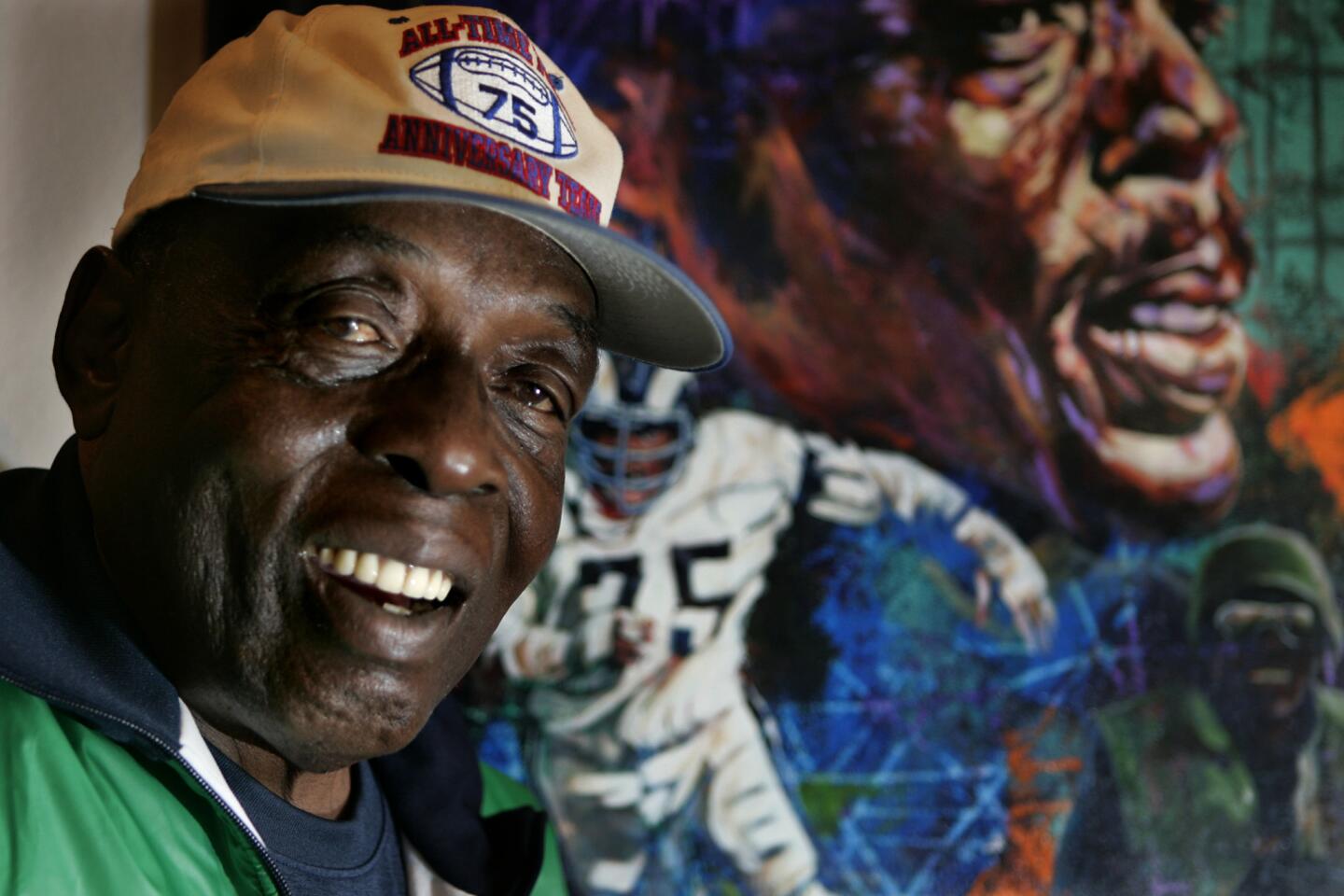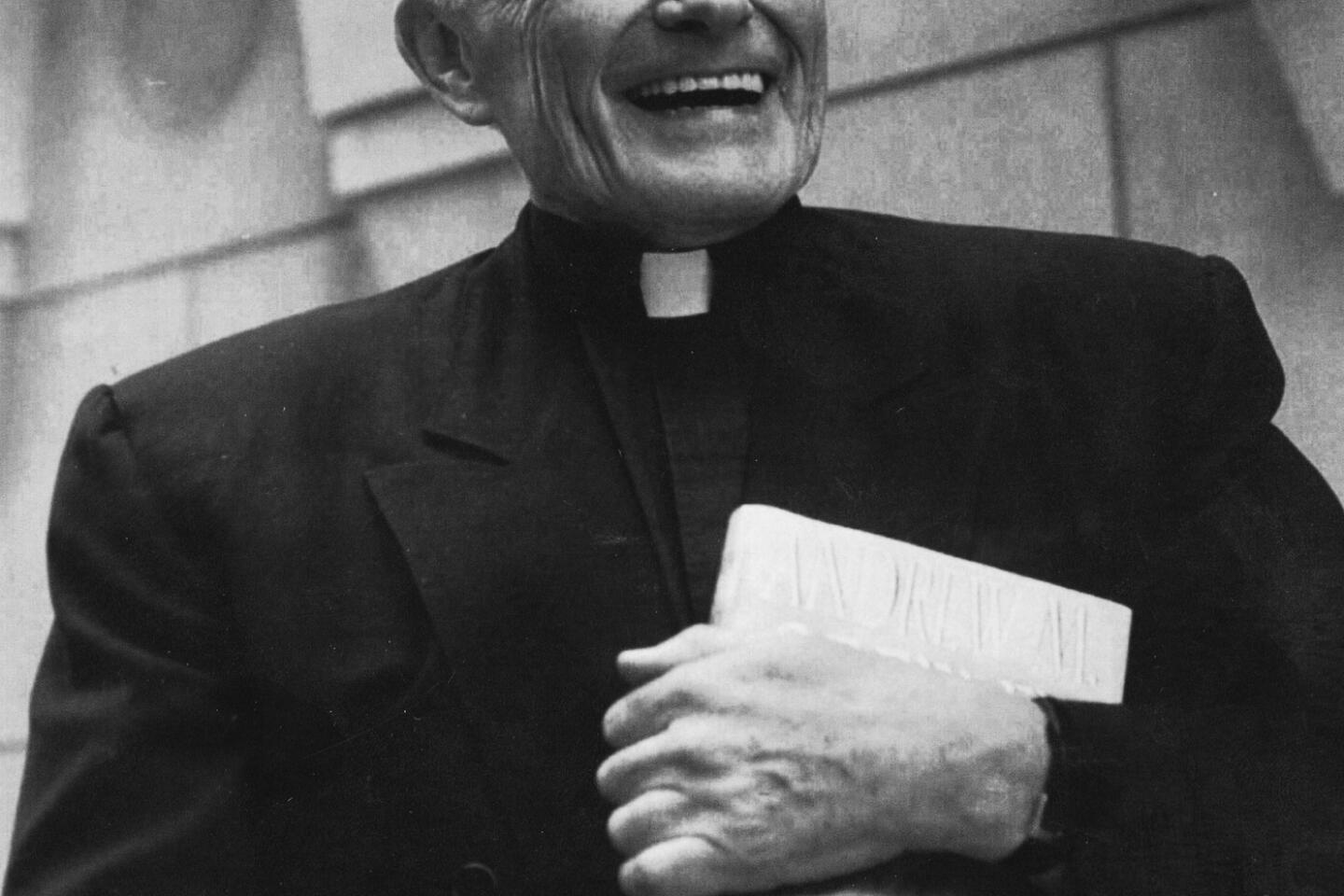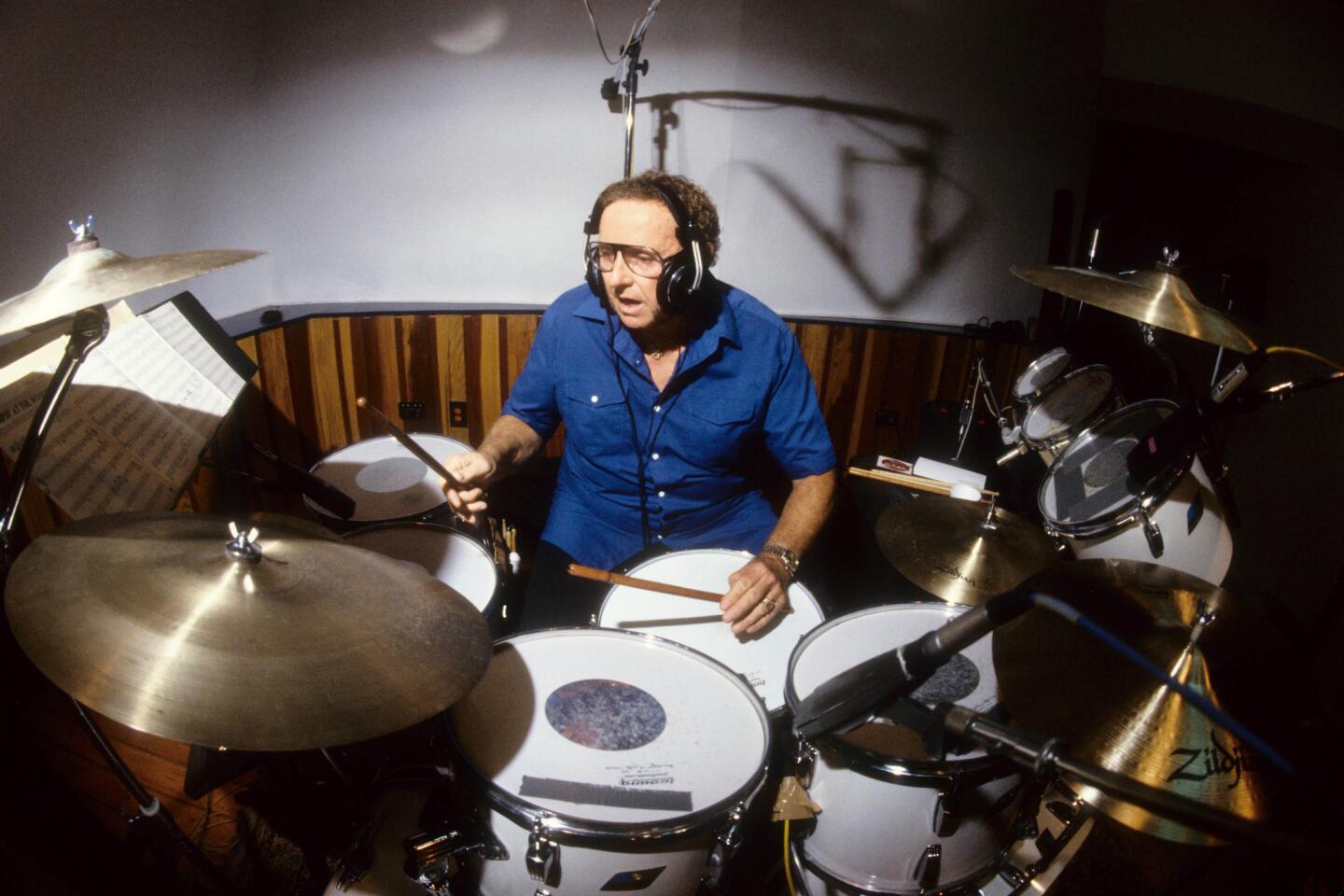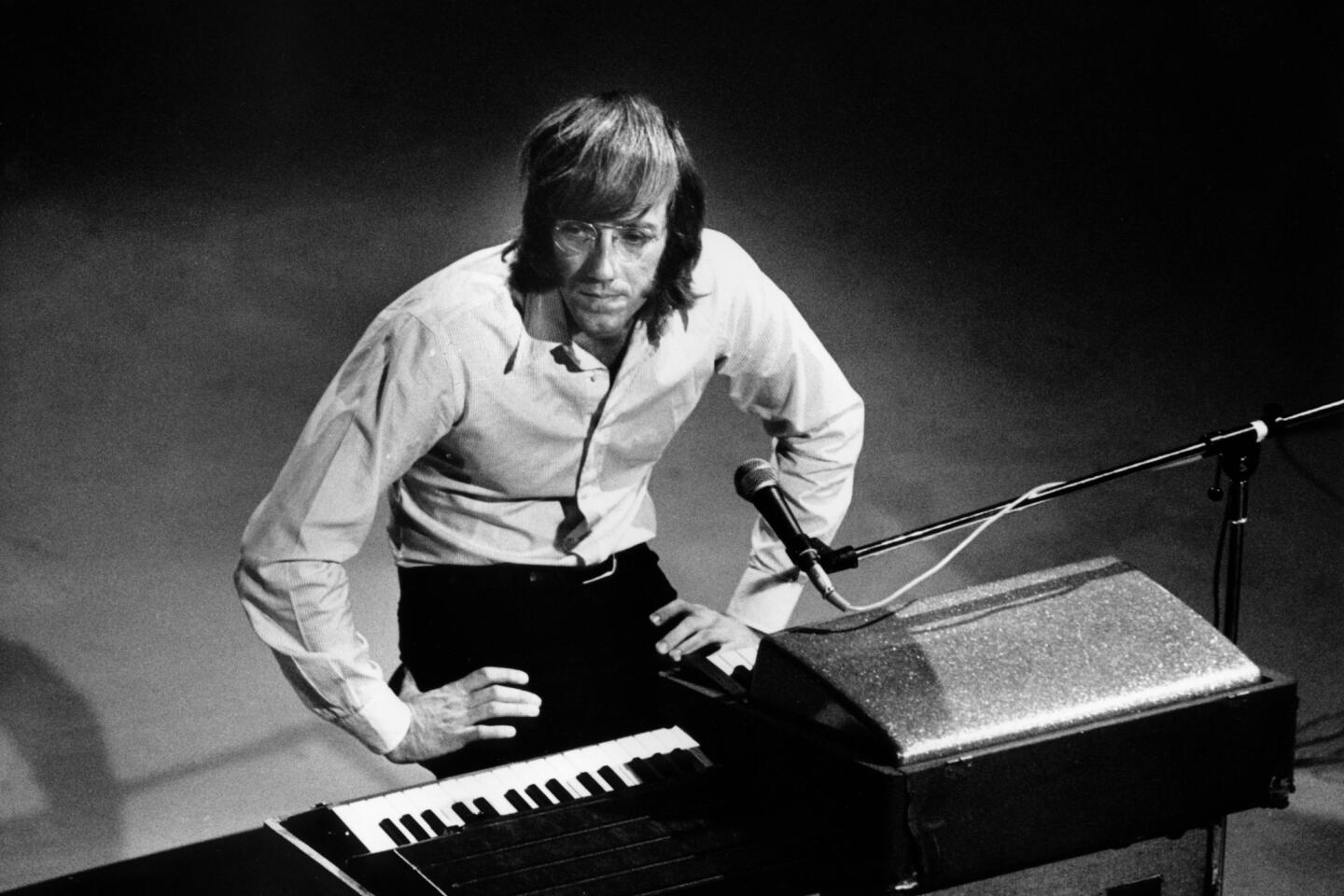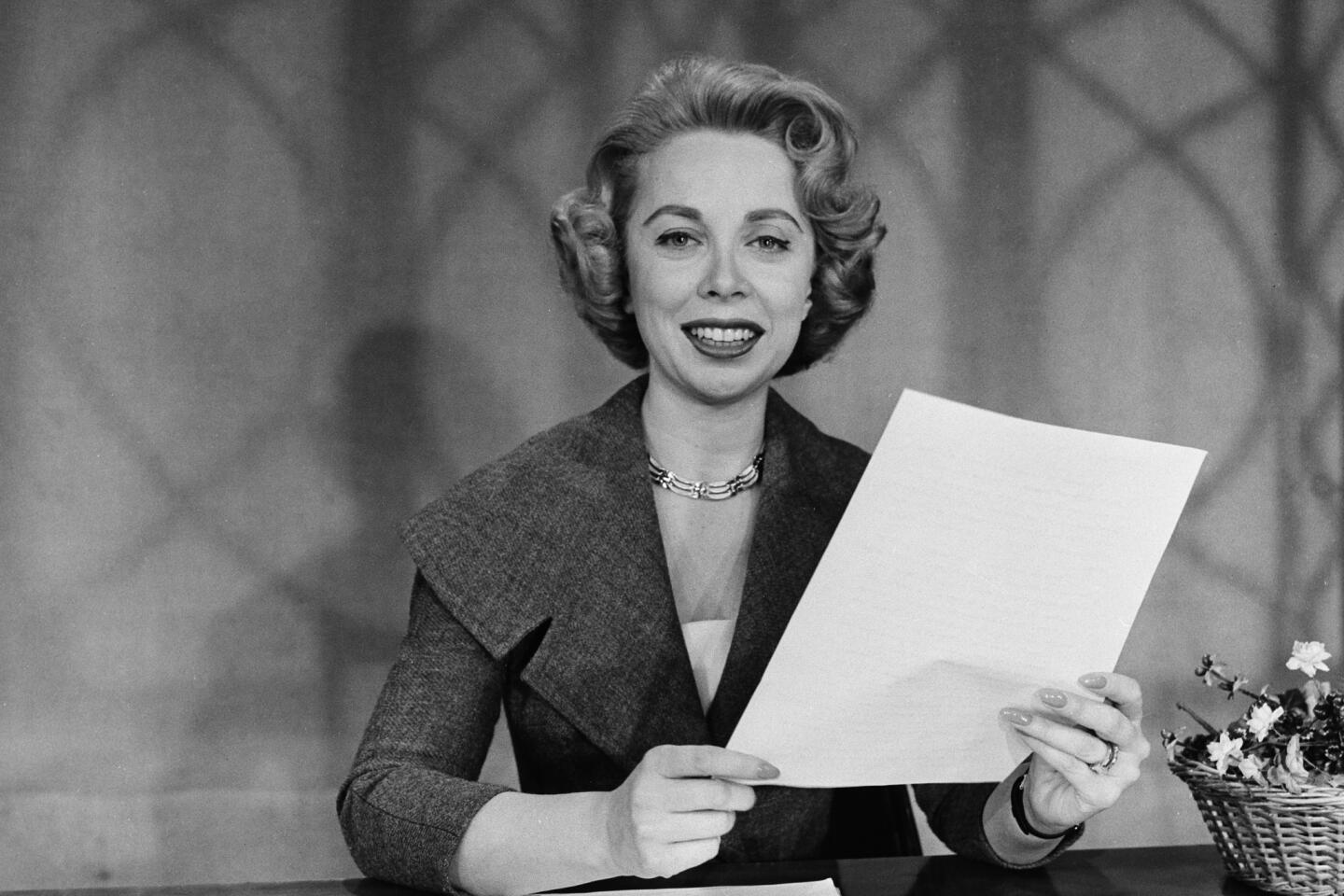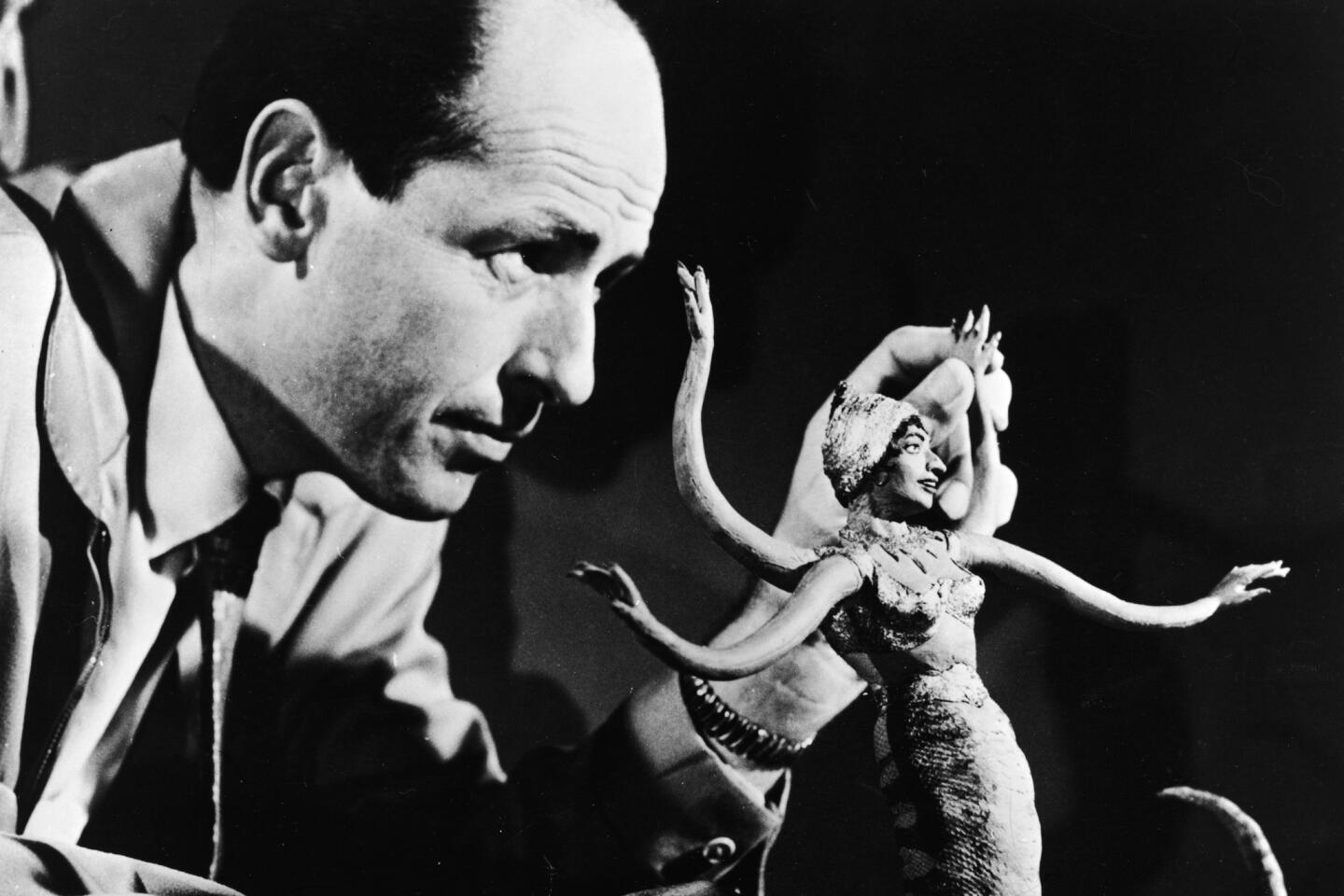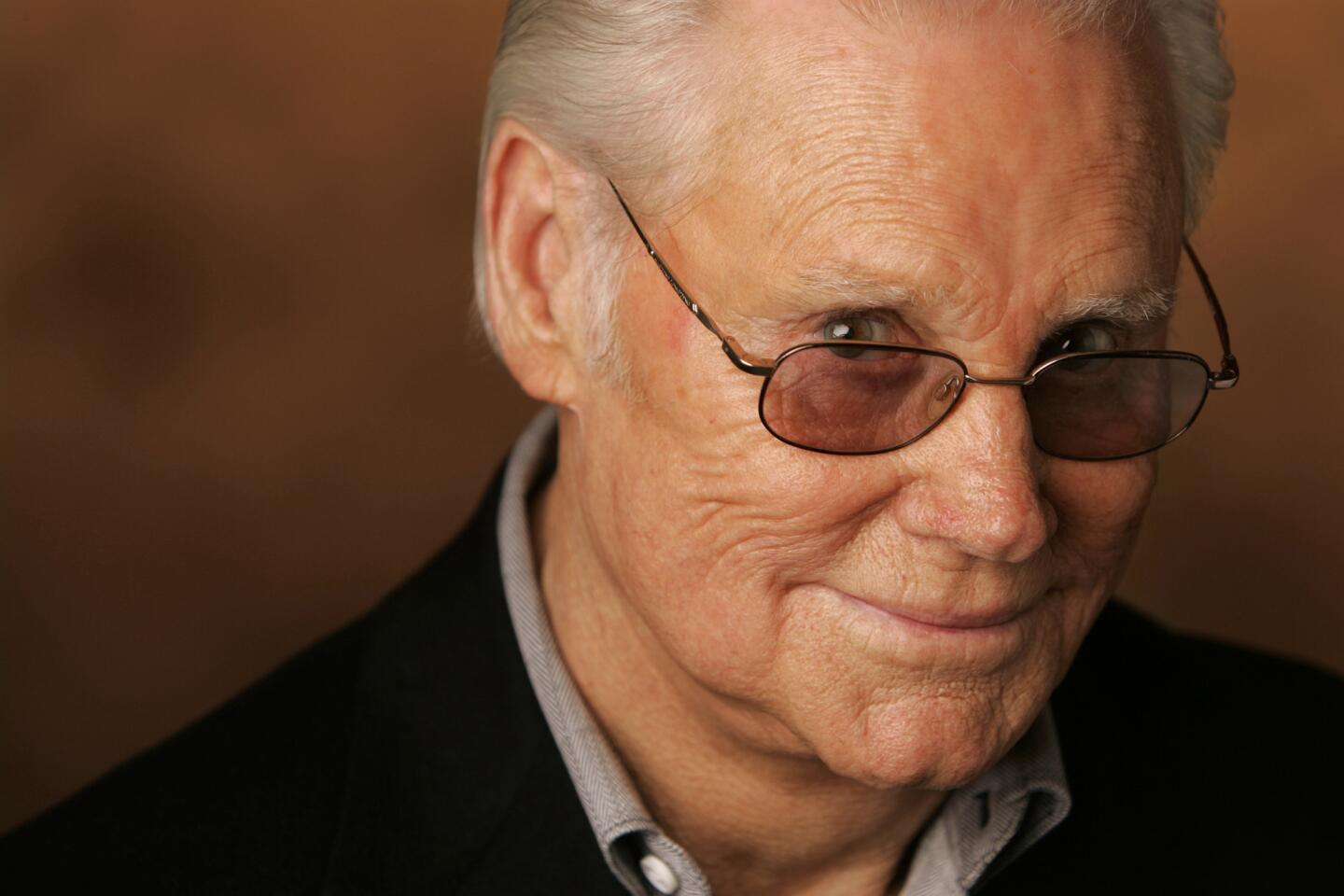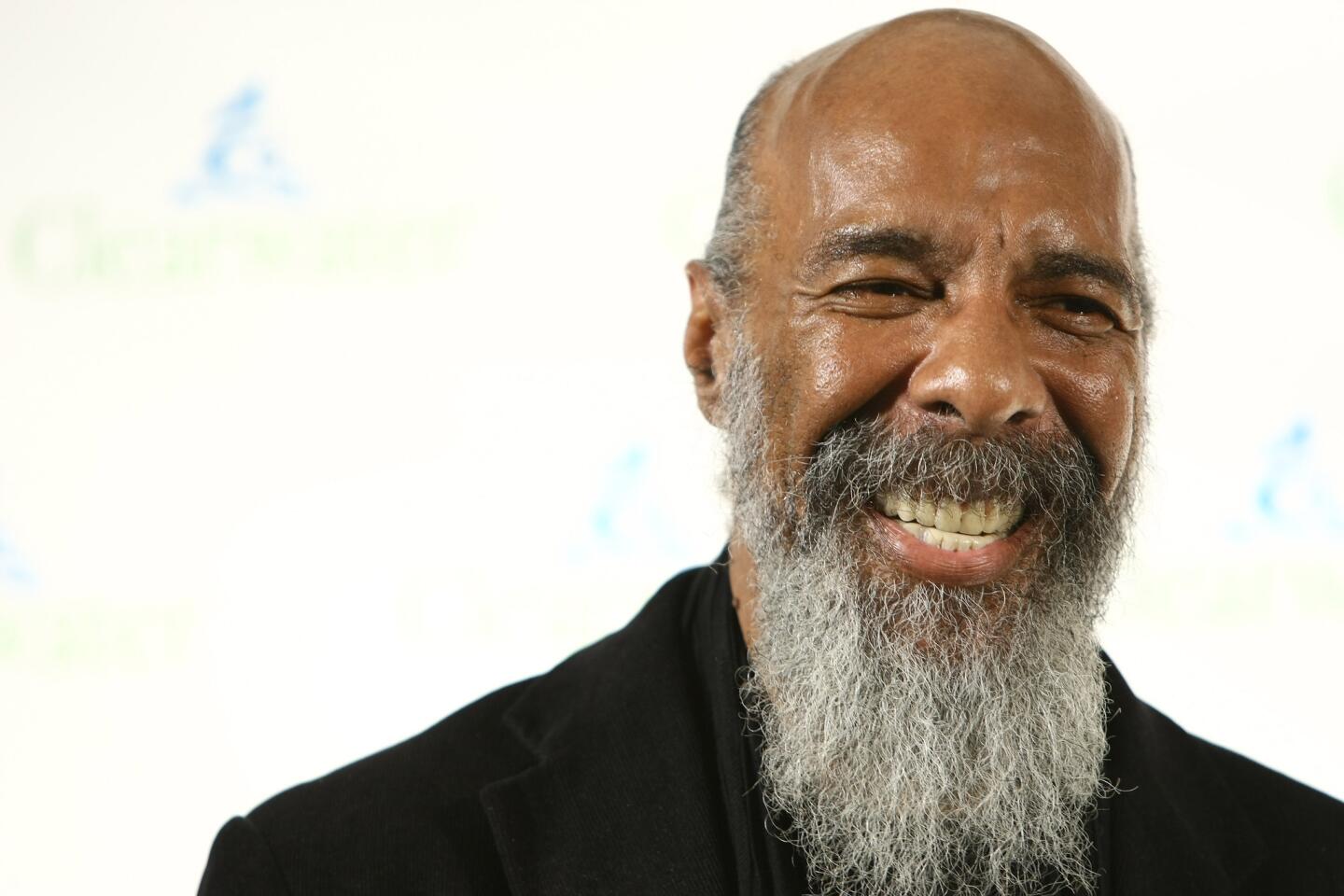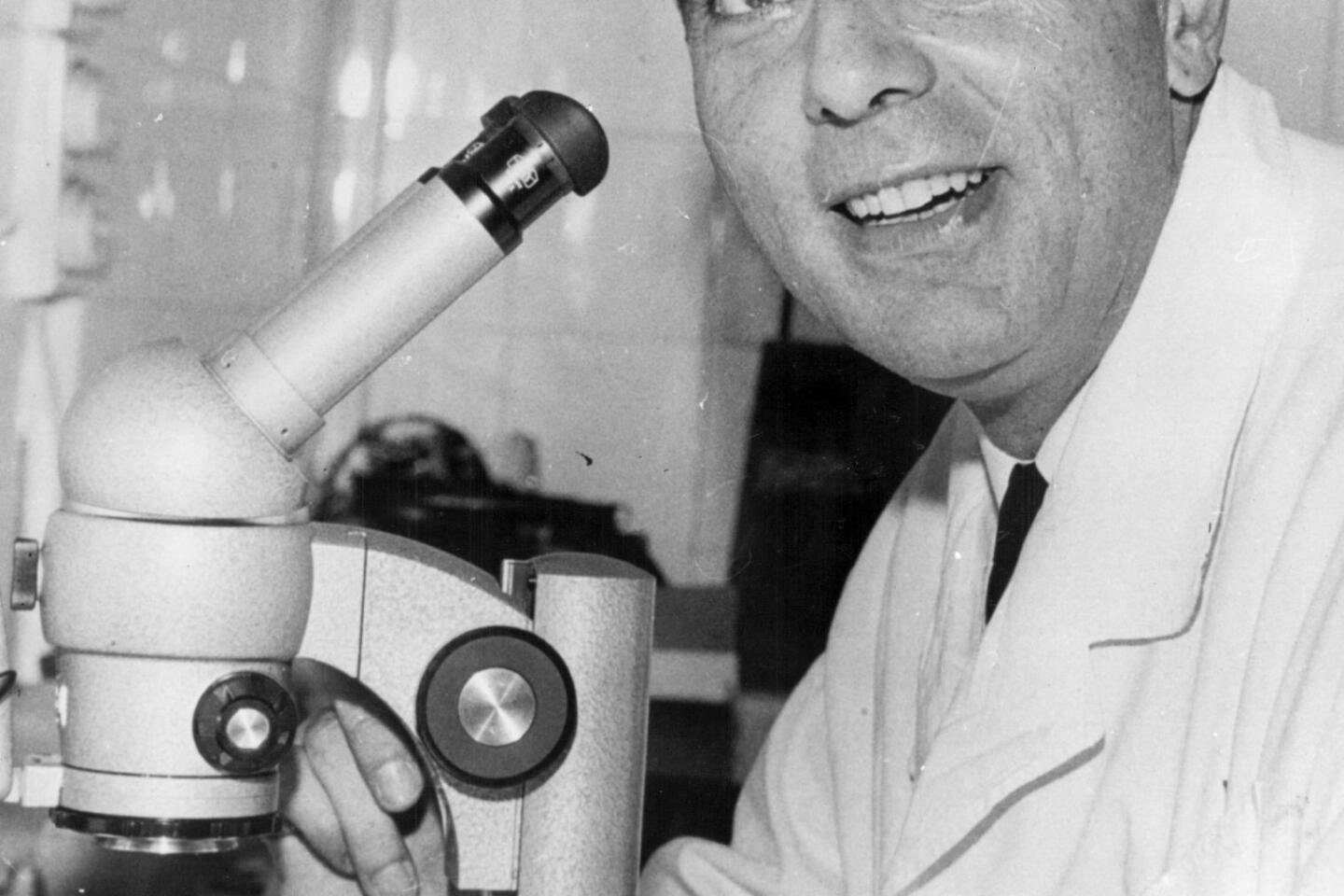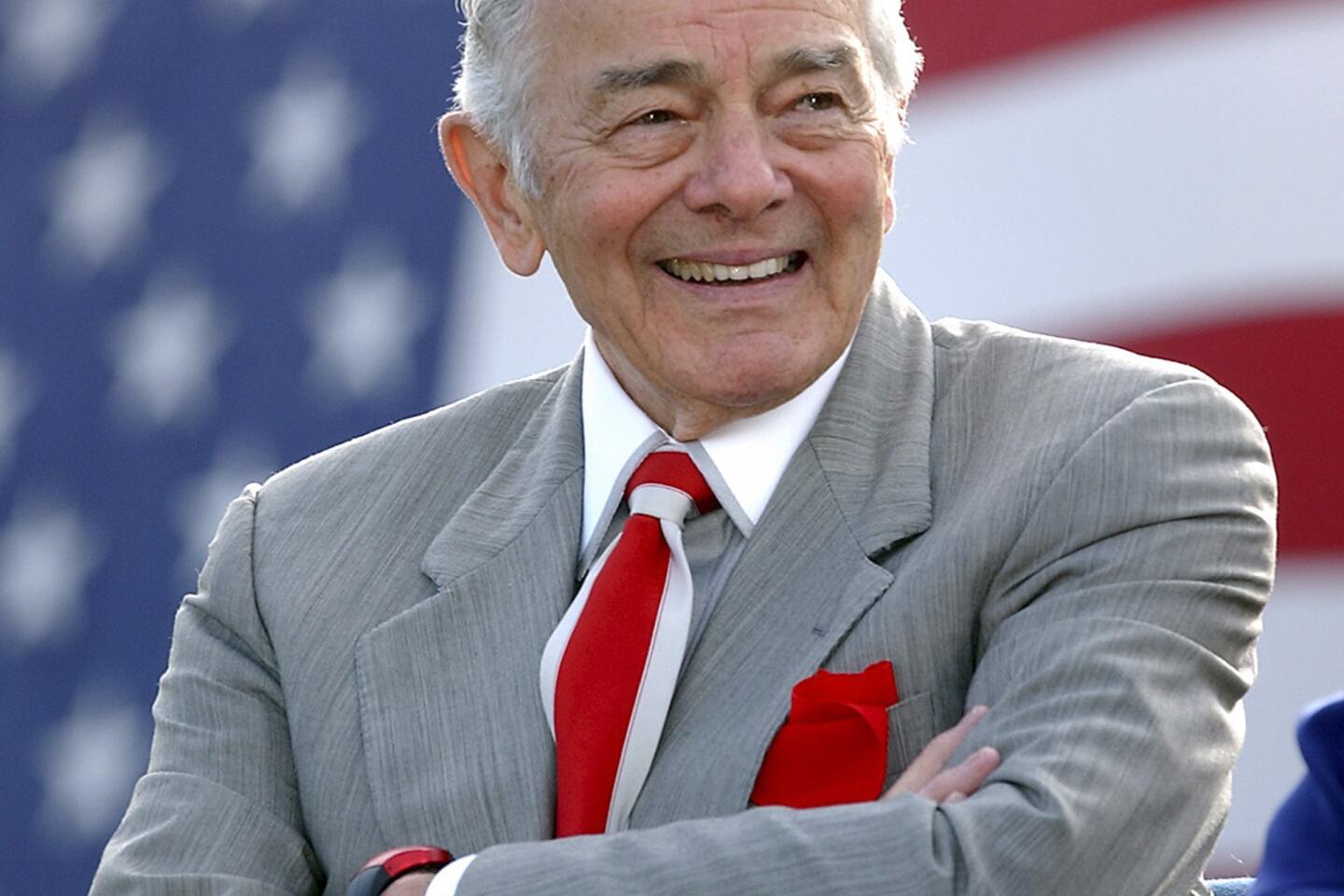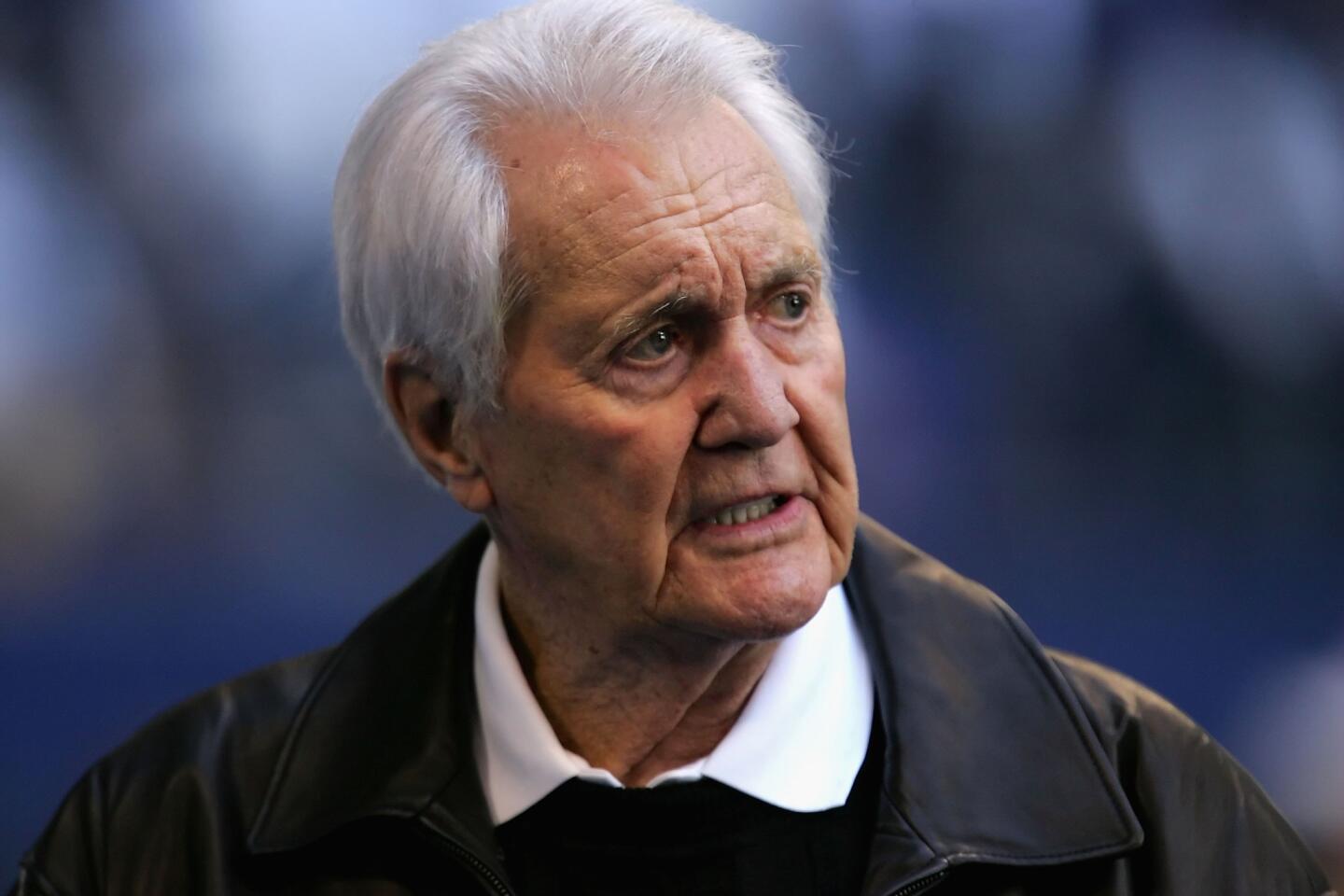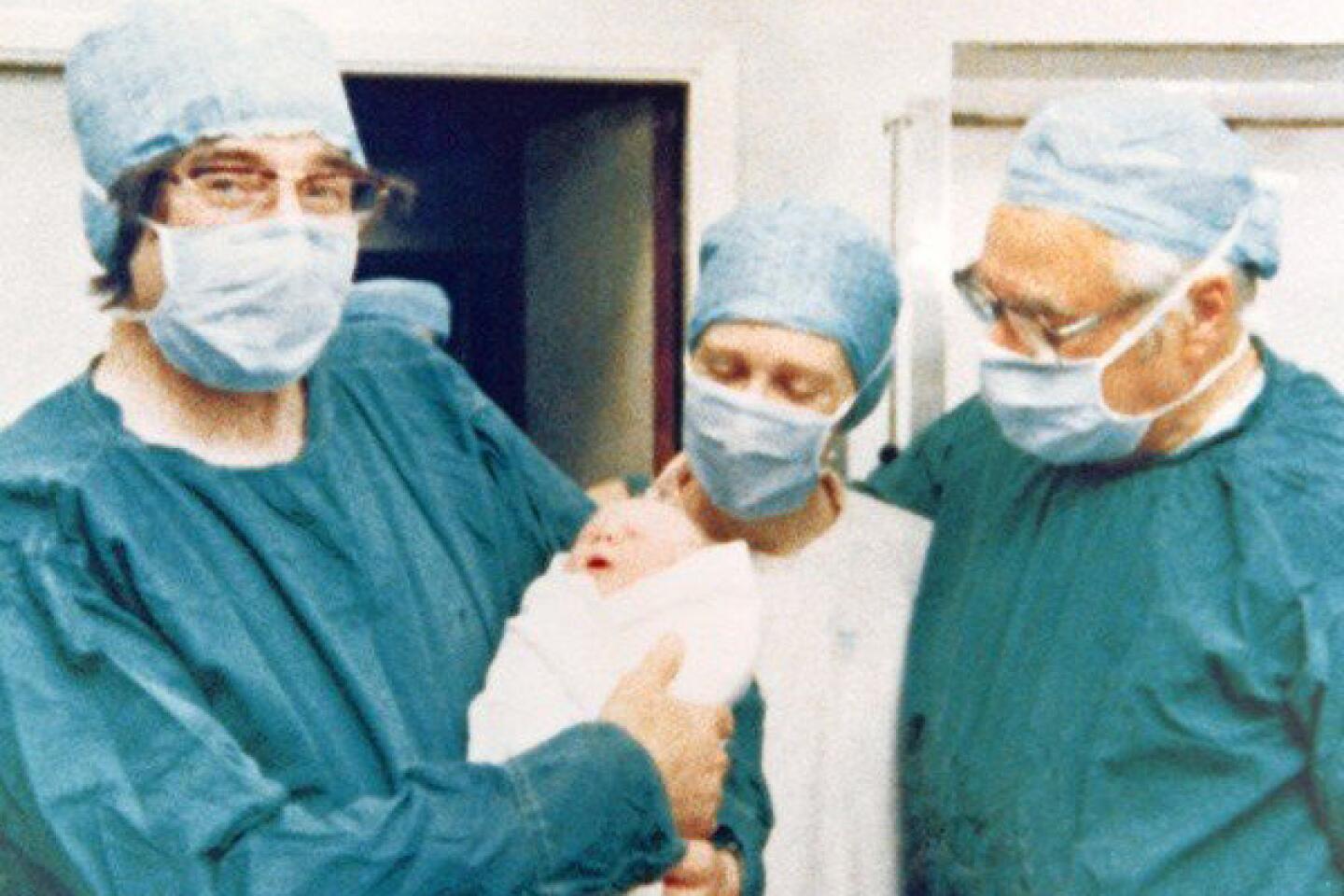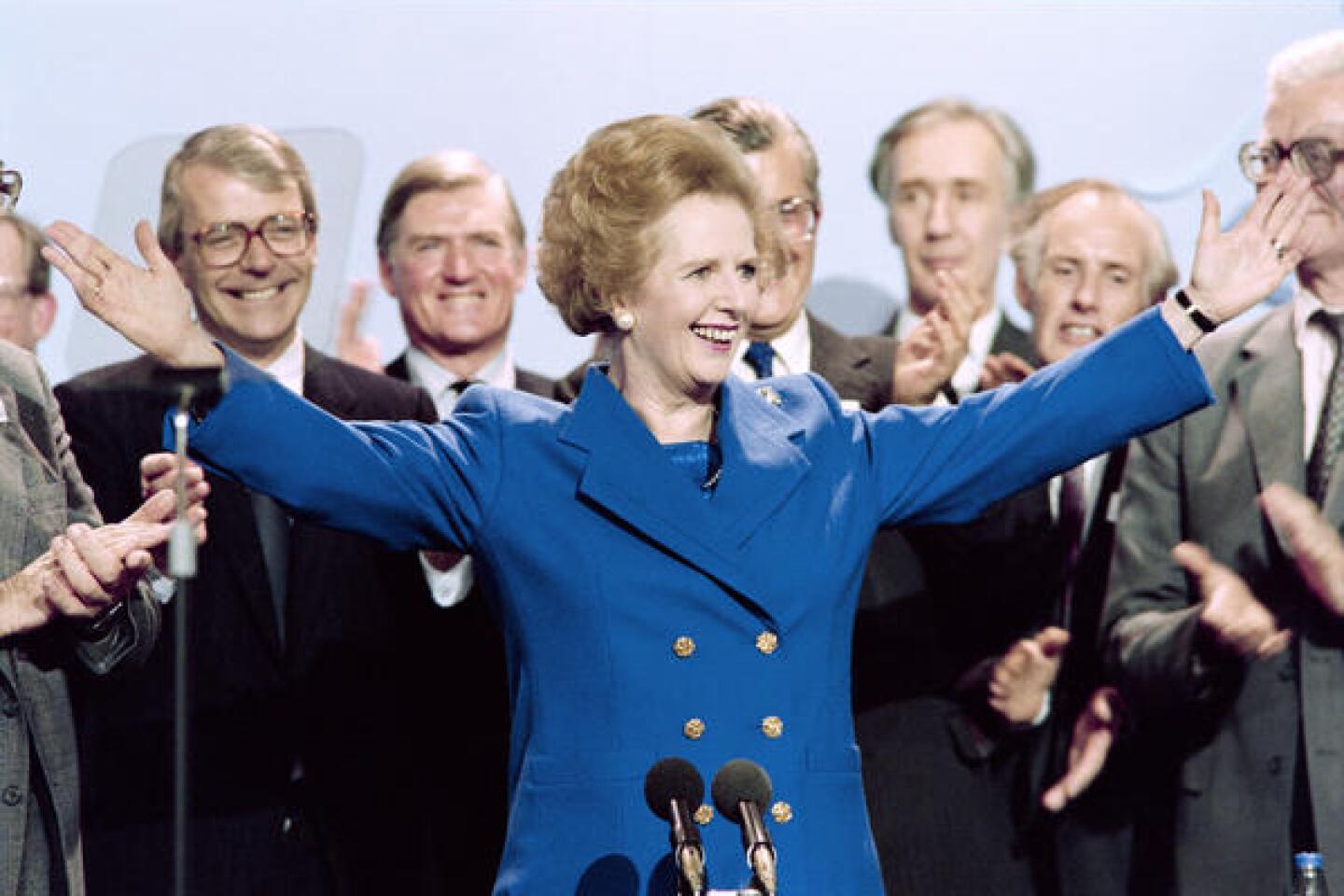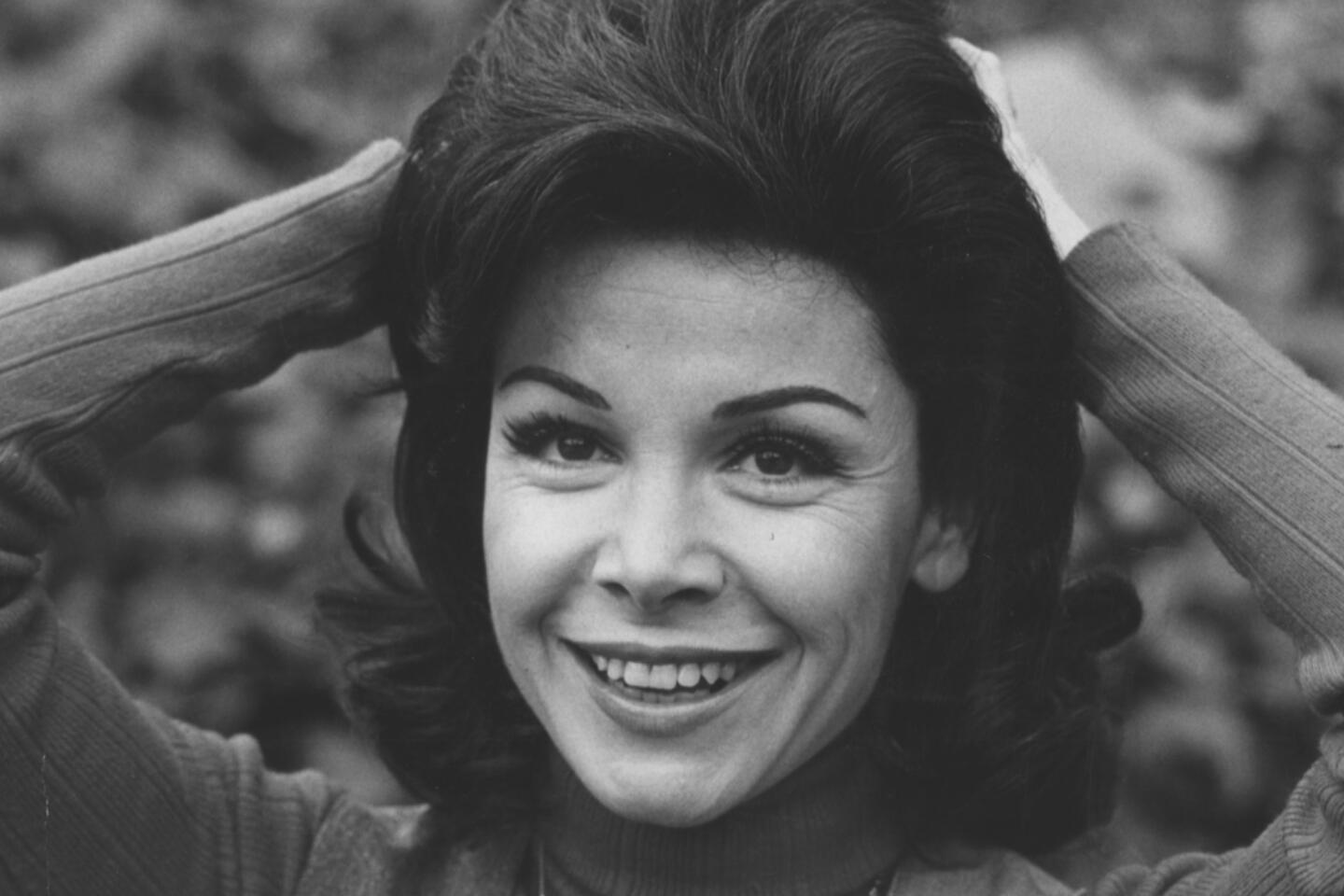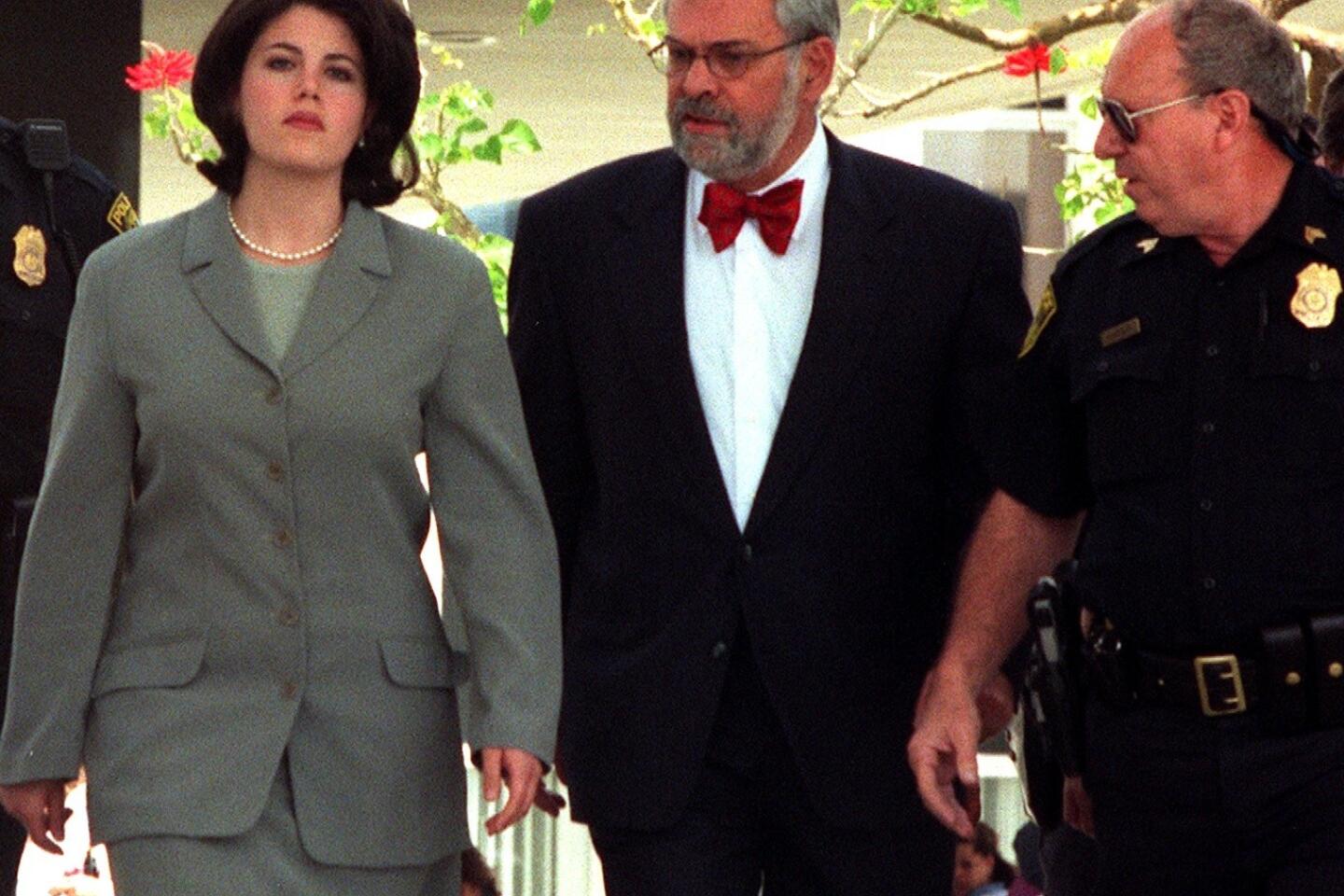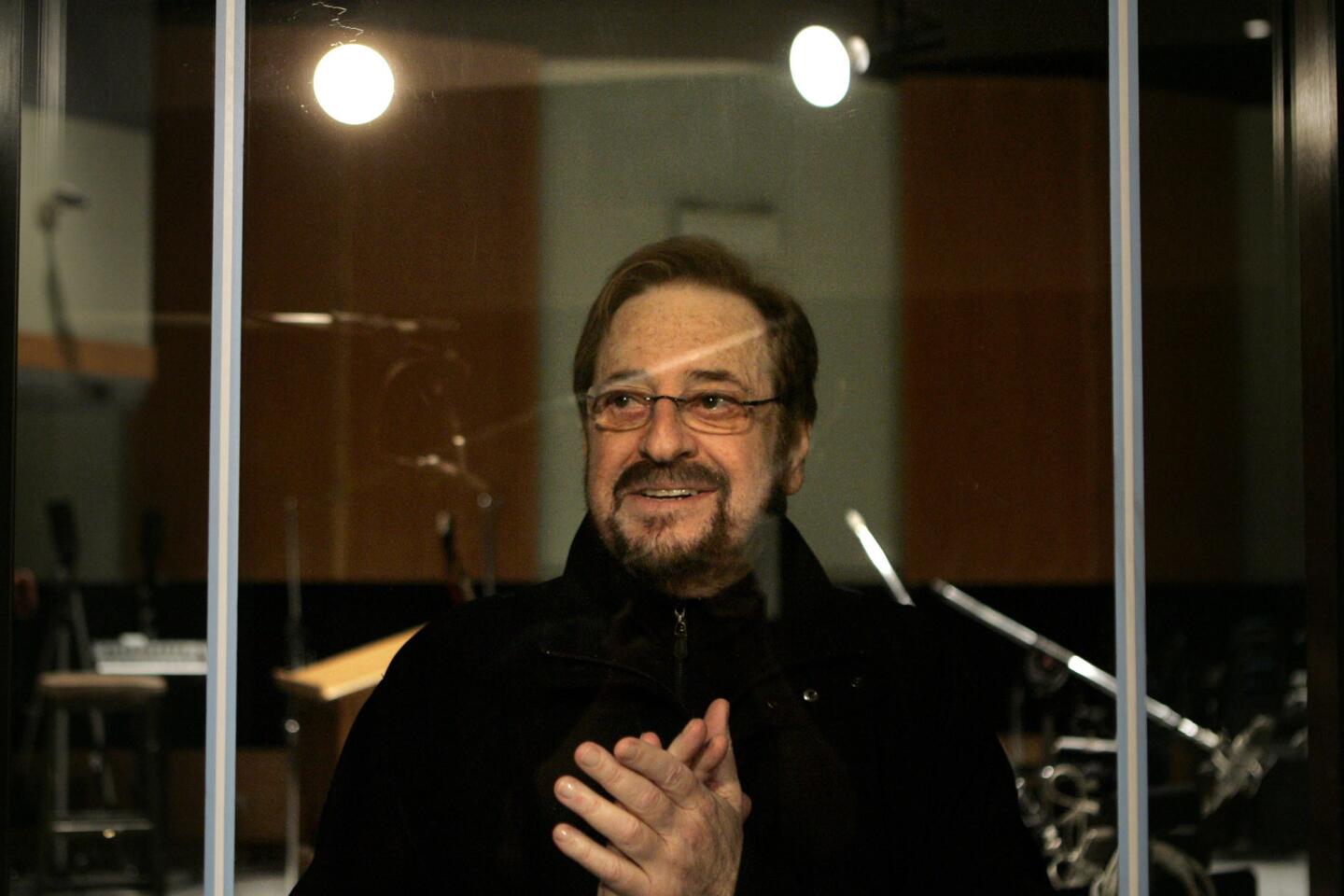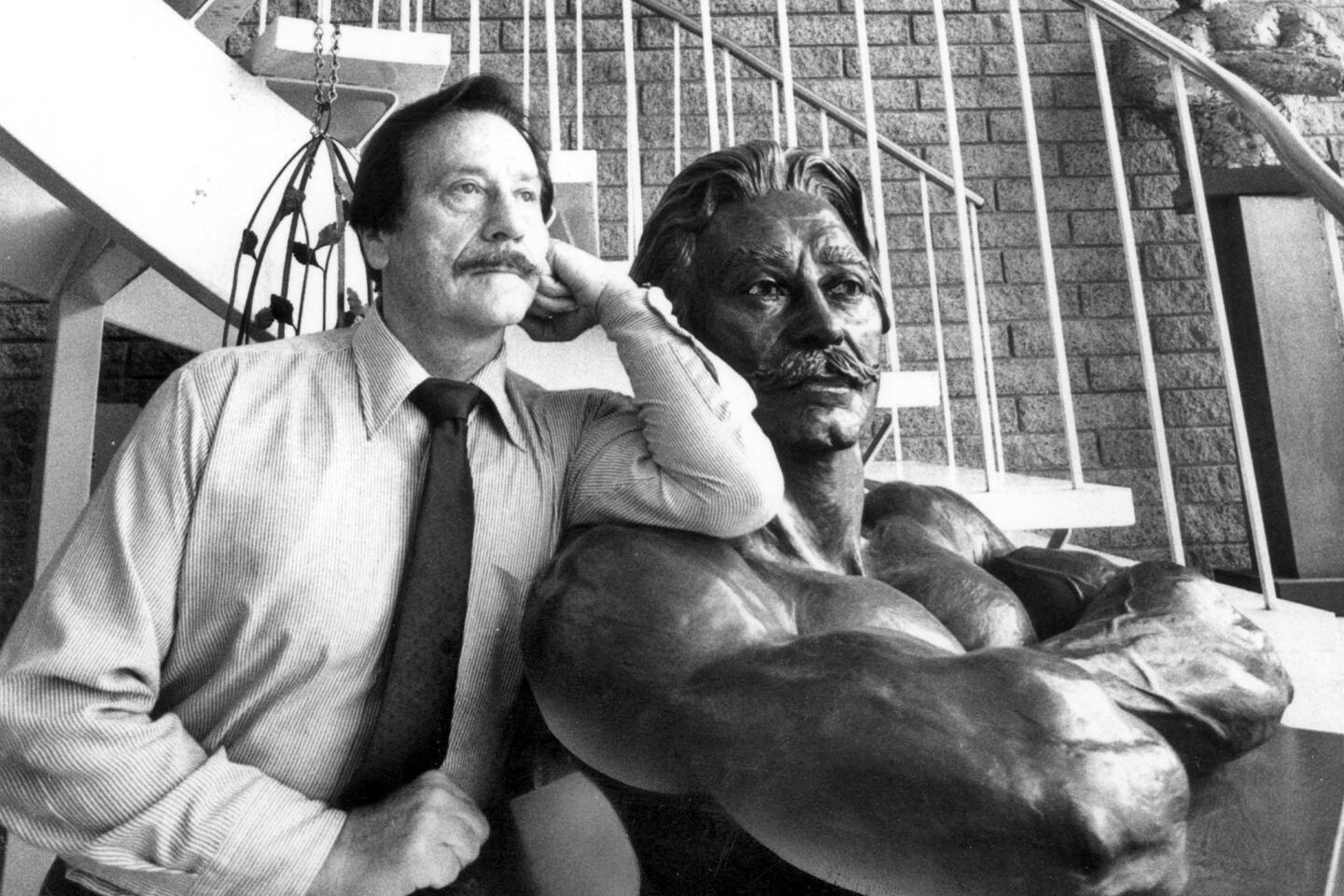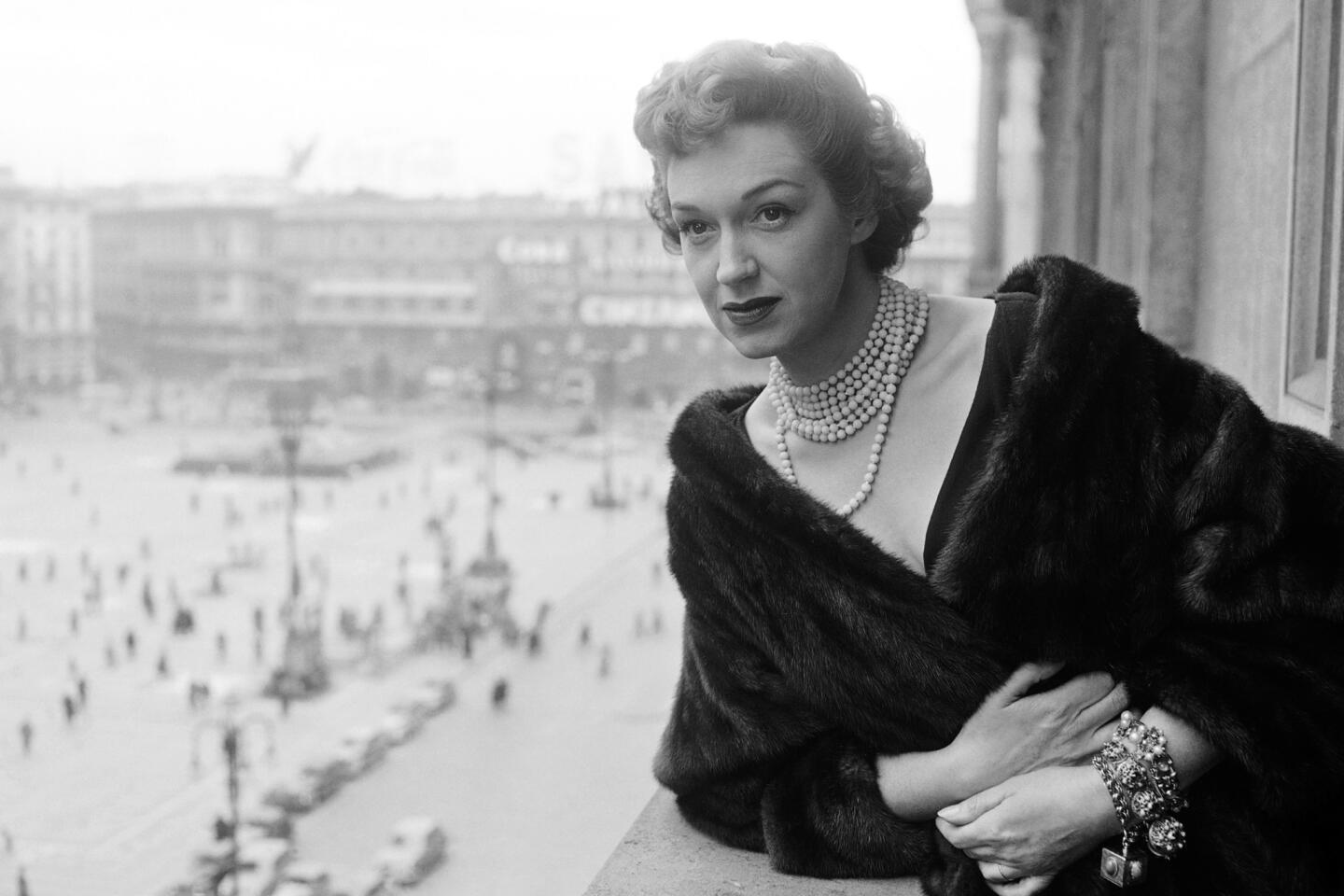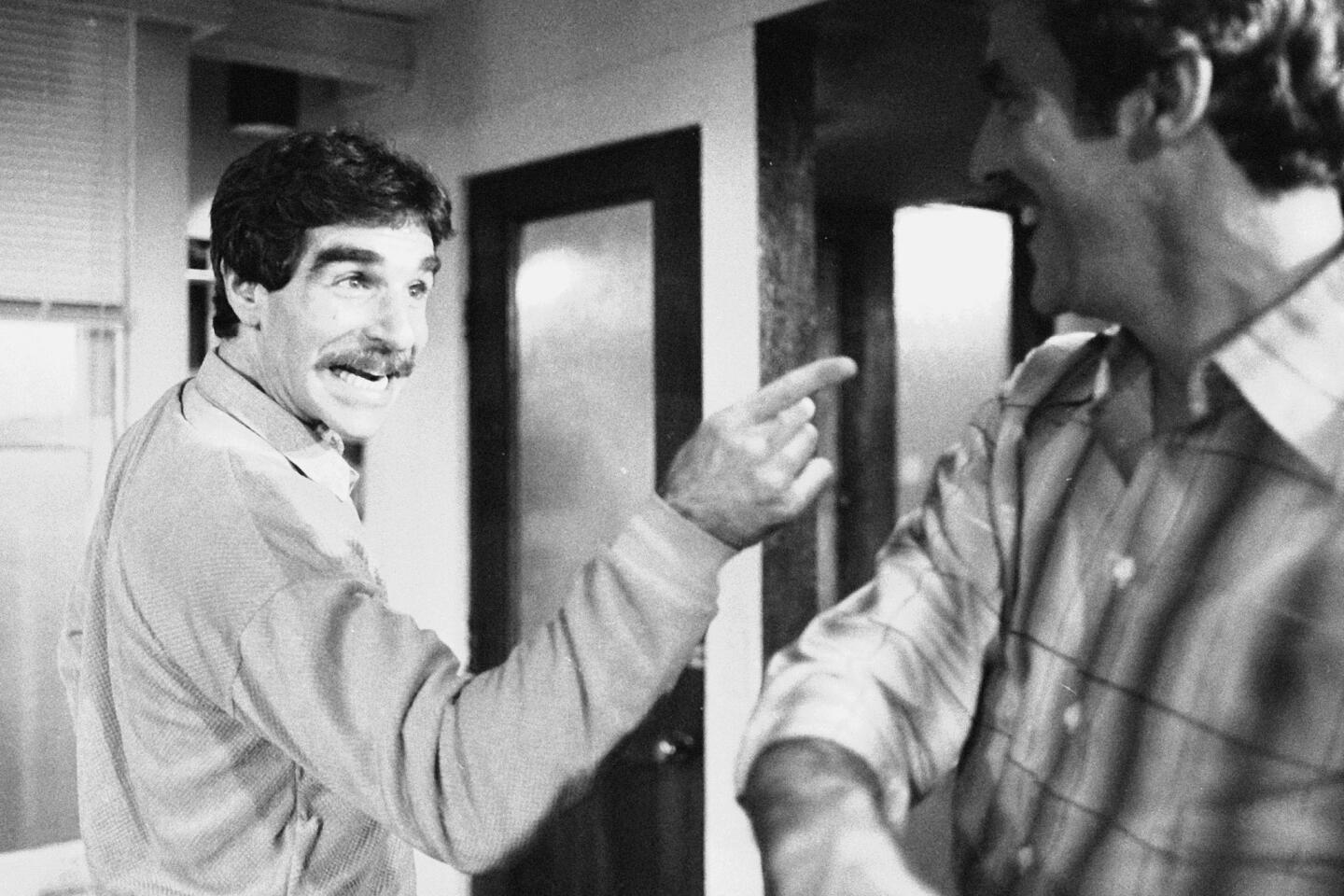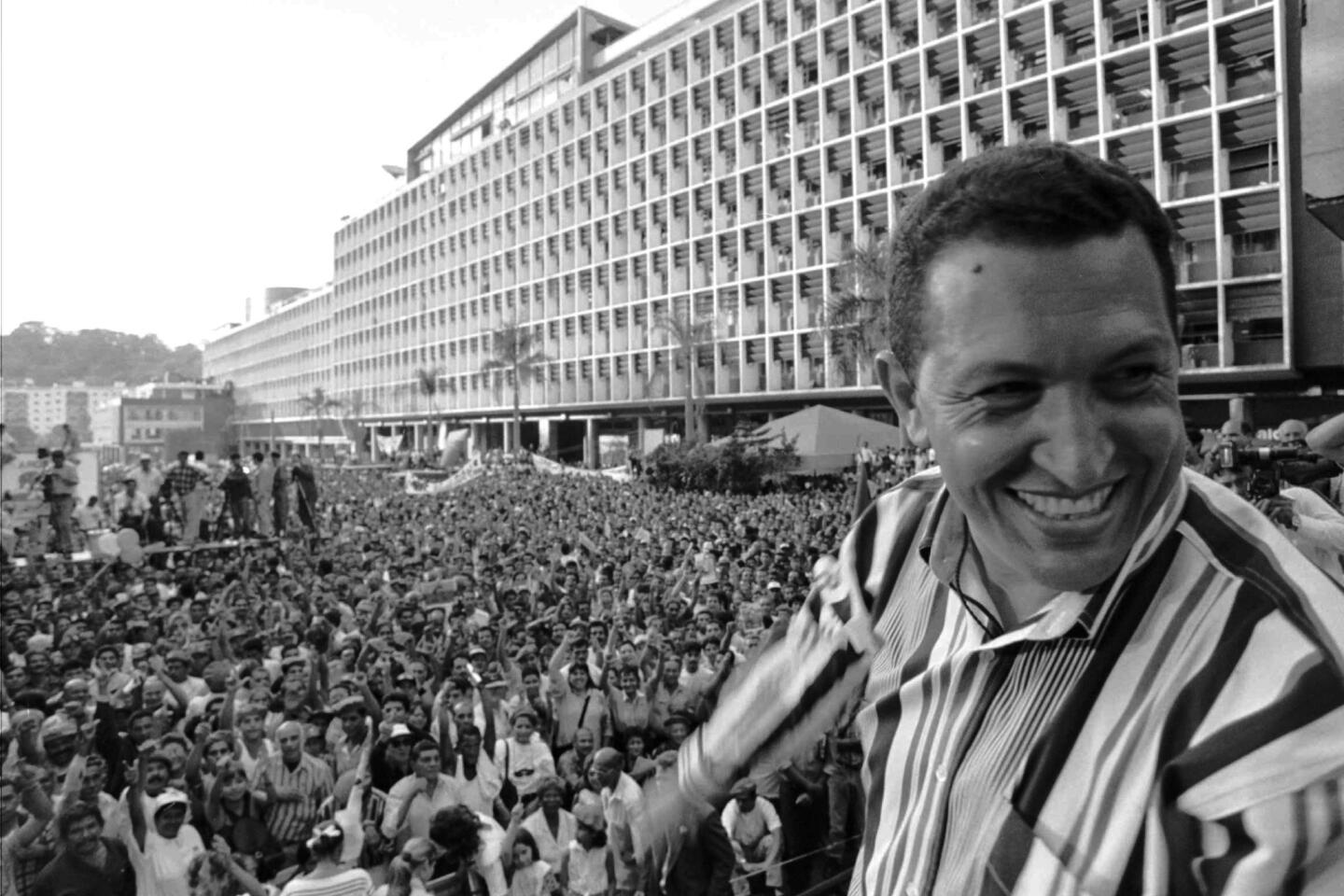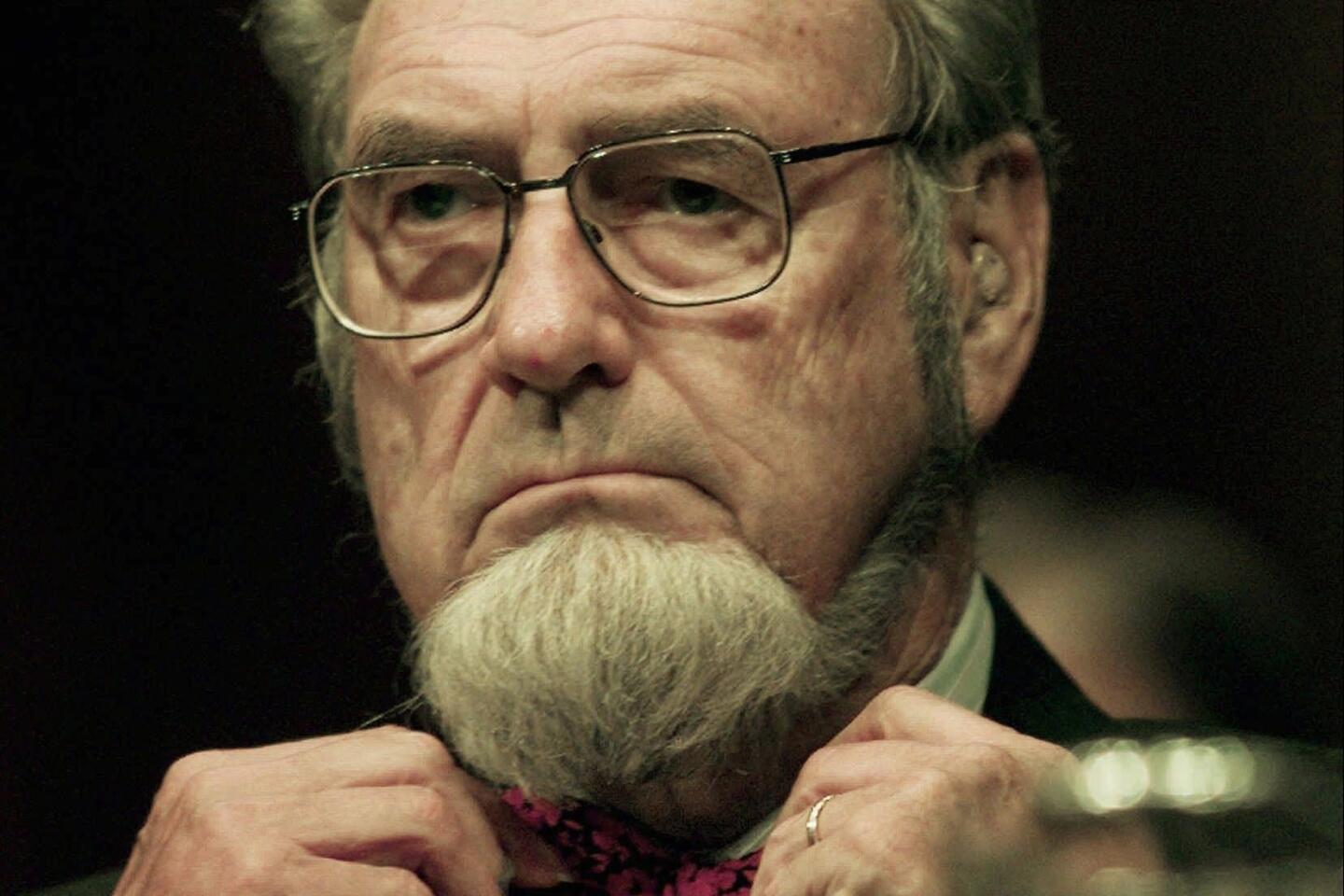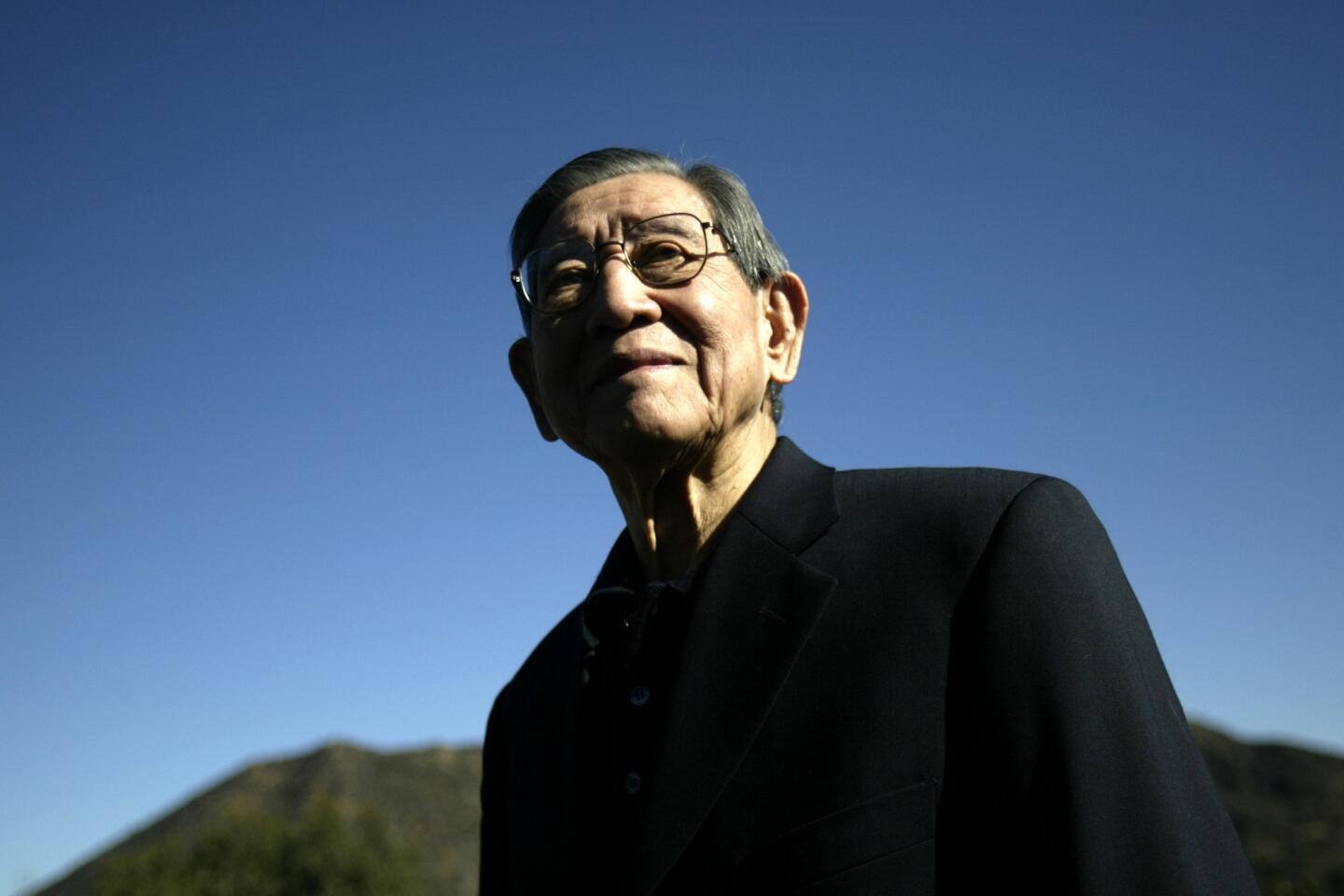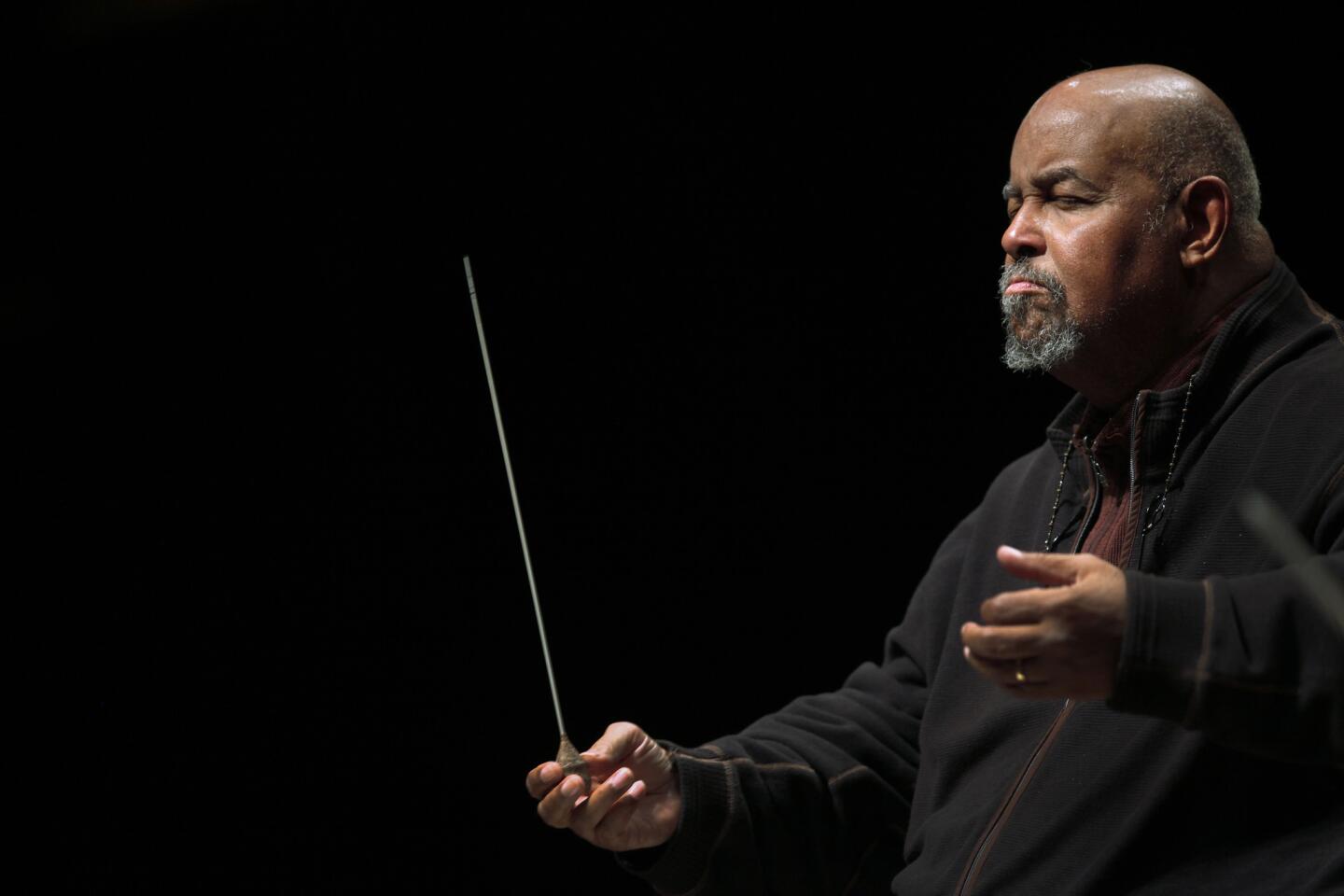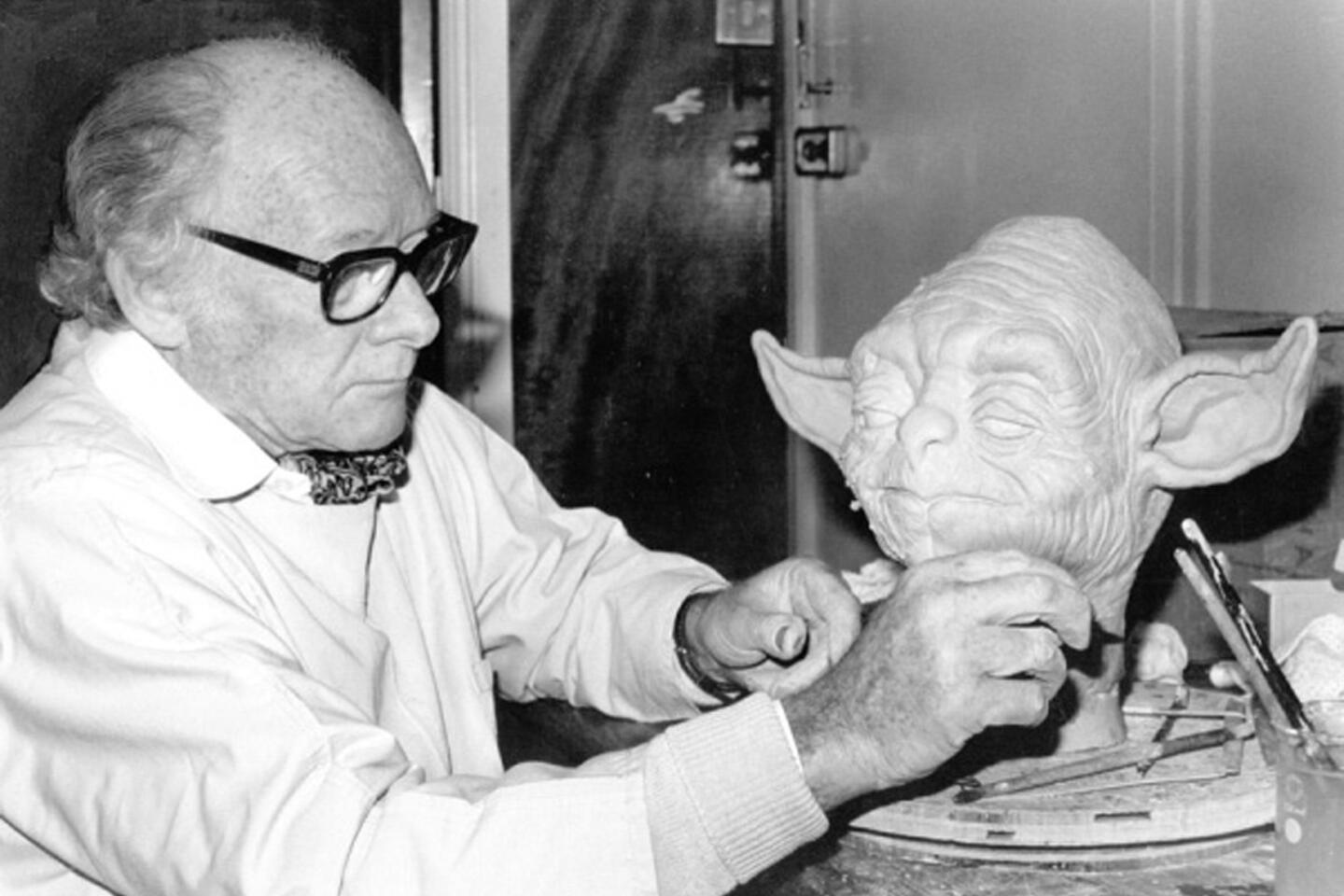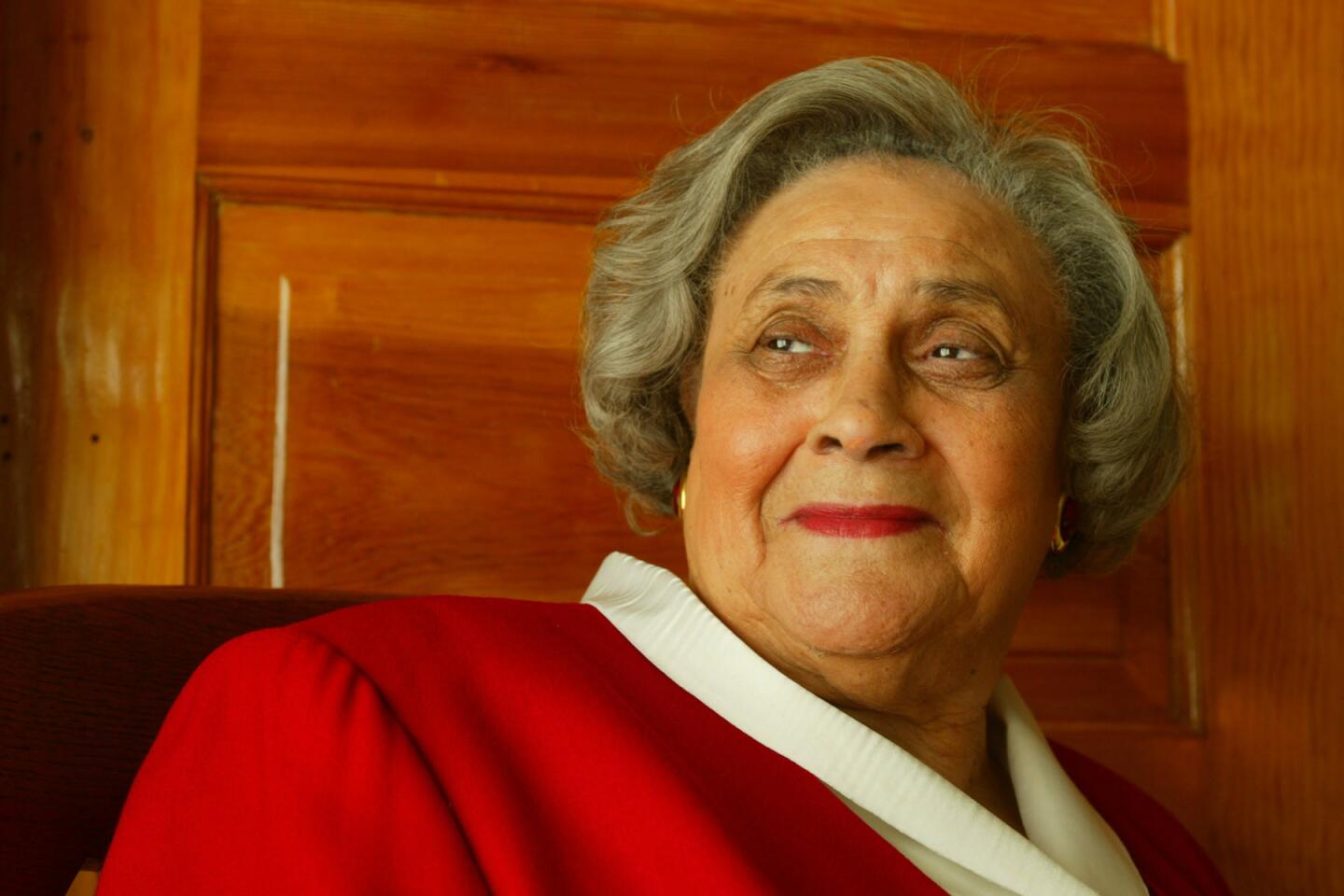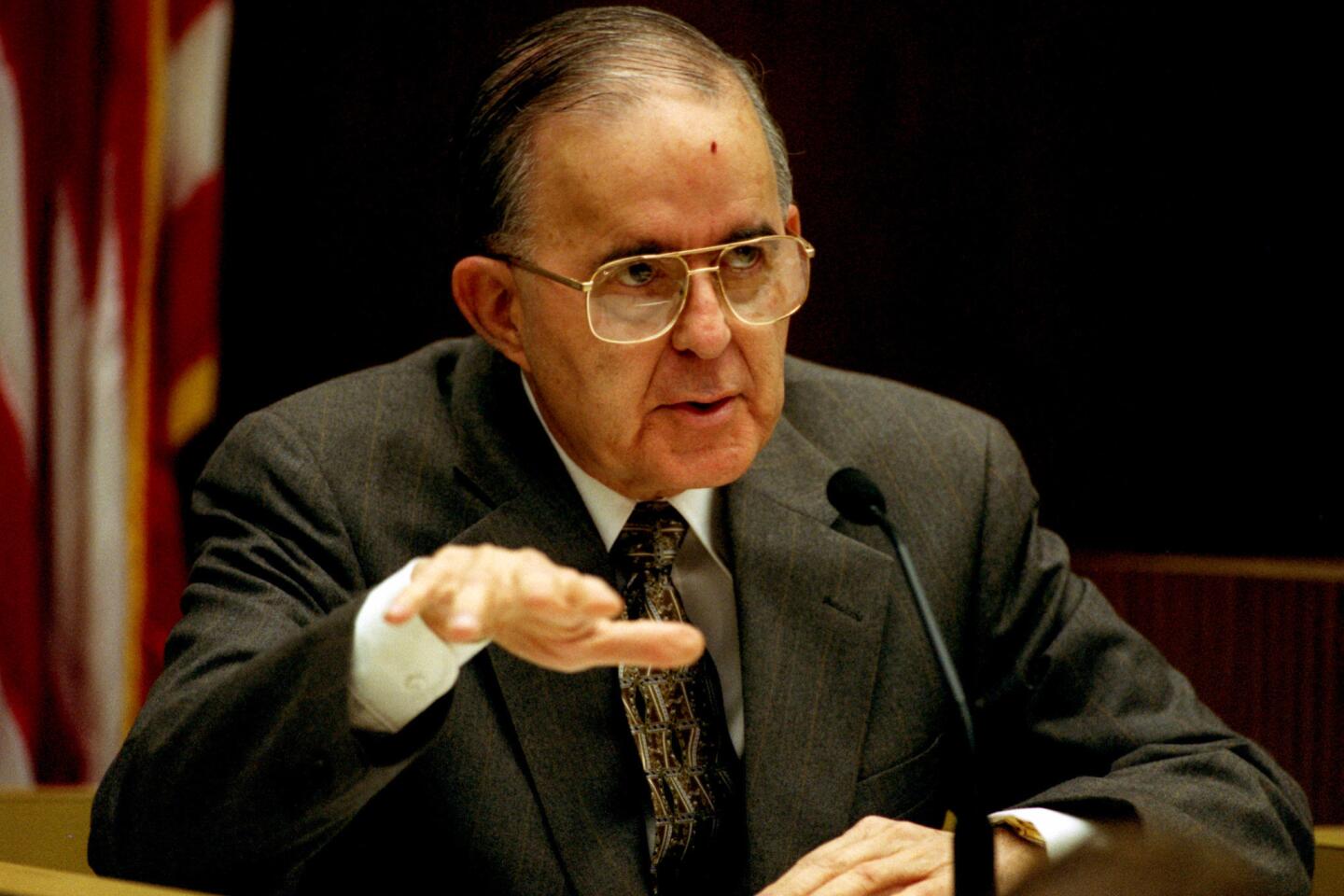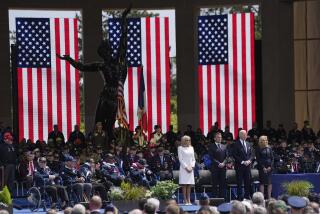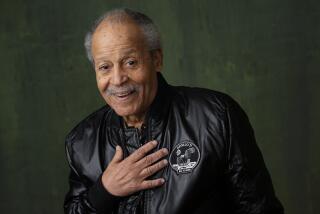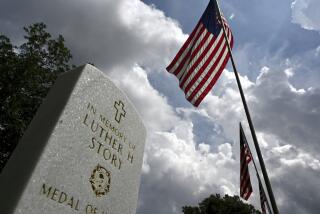George ‘Bud’ Day dies at 88; POW was John McCain’s cellmate in Vietnam
- Share via
Retired Col. George “Bud” Day, a Medal of Honor recipient who spent 5 1/2 years as a POW in Vietnam and was Arizona Sen. John McCain’s cellmate, has died. He was 88.
One of the nation’s most highly decorated servicemen since Gen. Douglas MacArthur and later a tireless advocate for veterans’ rights, Day died Saturday surrounded by family at his home in Shalimar, Fla., after a long illness, said his wife, Doris.
Day received the Medal of Honor for escaping his captors for 10 days after the aircraft he was piloting was shot down over North Vietnam. In all, he earned more than 70 medals during service in World War II, Korea and Vietnam.
He was an enlisted Marine serving in the Pacific during World War II and an Air Force pilot in the Korean and Vietnam wars.
In Vietnam, he was McCain’s cellmate at one camp known as the Plantation and later in the infamous Hanoi Hilton, where he was often the highest-ranking captive. During his imprisonment, the once-muscular, 5-foot-9 Day was hung by his arms for days, tearing them from their sockets. He was freed in 1973 — a skeletal figure of the once dashing fighter pilot. His hands and arms never functioned properly again.
“As awful as it sounds, no one could say we did not do well. [Being a POW] was a major issue in my life and one that I am extremely proud of. I was just living day to day,” he said in a 2008 interview with the Associated Press. “One really bad cold and I would have been dead.”
In a statement Sunday, McCain called Day a great patriot and said he owed his life to the man. “He was the bravest man I ever knew, and his fierce resistance and resolute leadership set the example for us in prison of how to return home with honor,” McCain said.
Day was born Feb. 24, 1925, in Sioux City, Iowa, where the airport is named for him. He joined the Marines in 1942 while still in high school. He returned home, graduated law school and passed the bar exam in 1949. He entered the Iowa National Guard in 1950 and attended flight school. He was called to active duty in the Air Force the next year and did two tours as a bomber pilot in the Korean war.
In Vietnam, Day was shot down over North Vietnam on Aug. 26, 1967. He bailed out, but the landing broke his knee and his right arm and left him temporarily blinded in one eye.
In the spring of 1968, Day’s North Vietnamese captors opened his cell door and brought in McCain, who was wearing a full body cast and was nearly dead. McCain had been in isolation for seven weeks and could not wash or feed himself, Day wrote in “Return With Honor,” his 1989 autobiography.
“We were the first Americans he had talked to.... We were delighted to have him, and he was more than elated to see us,” Day wrote. They helped nurse McCain.
After the war and his release, Day retired to the Florida Panhandle in 1977 and practiced law, becoming a crusader for veterans’ healthcare benefits. He took his fight to the U.S. Supreme Court in a 2003 lawsuit that alleged the government reneged on its promise to provide free lifetime healthcare to hundreds of thousands of Korean and World War II veterans.
The high court declined to hear an appeal of the case brought on behalf of two Panhandle retirees, but the legal action was credited with prompting Congress to pass legislation in 2000 expanding the military’s TRICARE health insurance program to include veterans over age 65 who had served at least 20 years or were medically retired.
Day was active in McCain’s failed 2000 and 2008 Republican presidential bids. His political activism caused controversy in 2010 when he supported Florida Gov. Charlie Crist in his failed Senate bid. Day called Crist’s primary opponent Marco Rubio “a Hispanic who can run his mouth.” He referred to President Obama as “the black one.”
More to Read
Start your day right
Sign up for Essential California for the L.A. Times biggest news, features and recommendations in your inbox six days a week.
You may occasionally receive promotional content from the Los Angeles Times.
